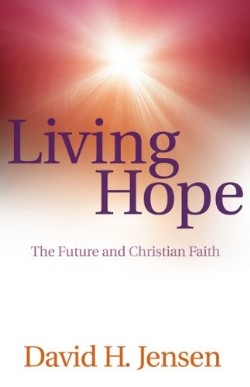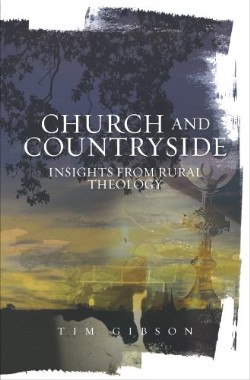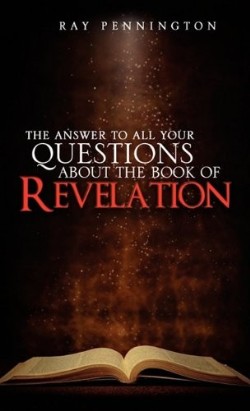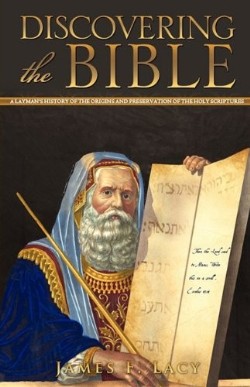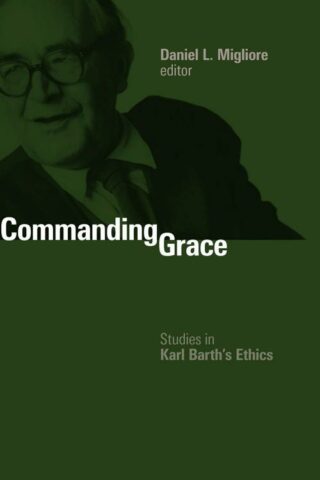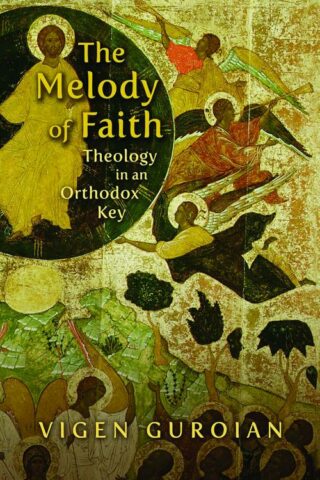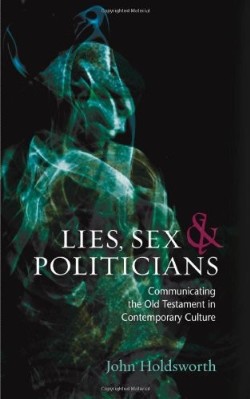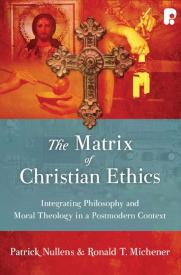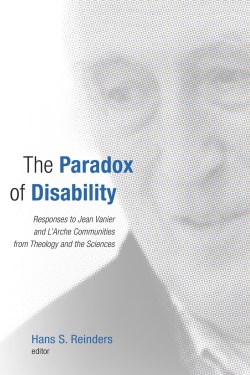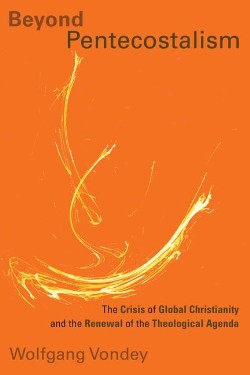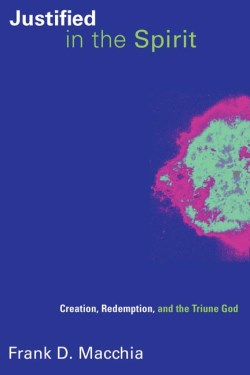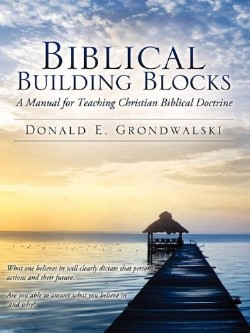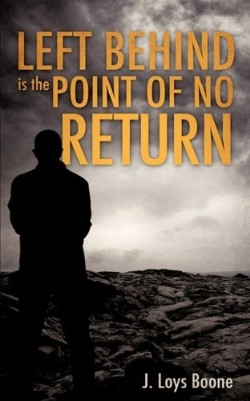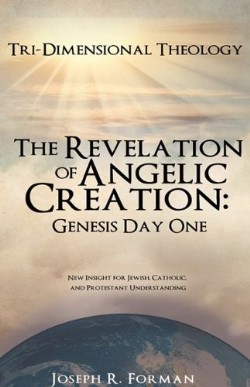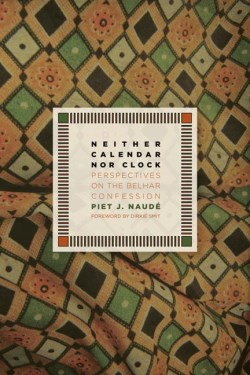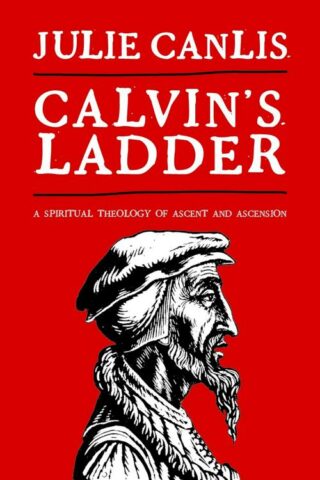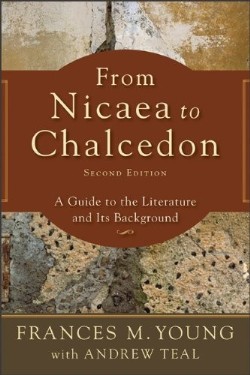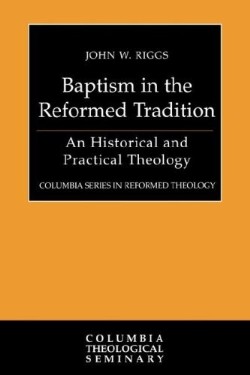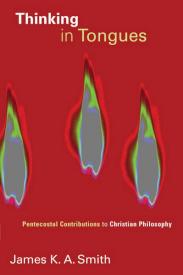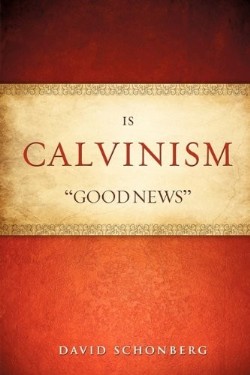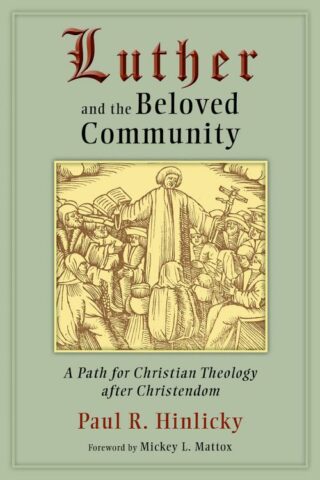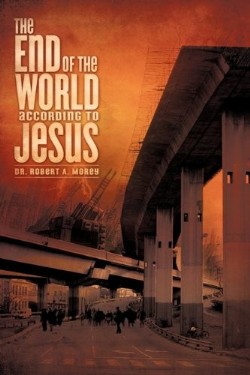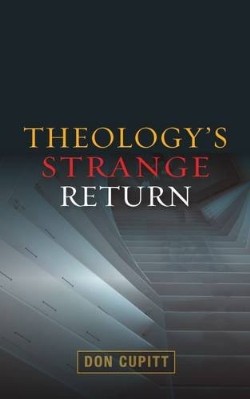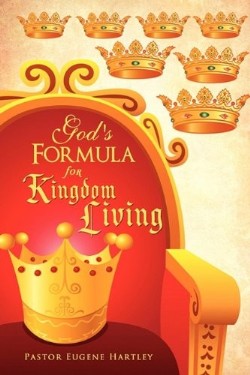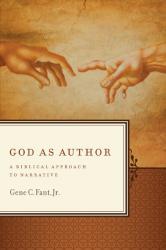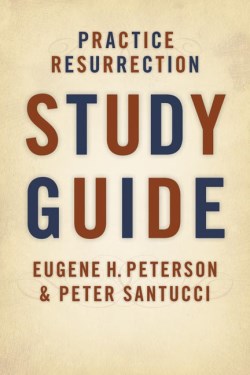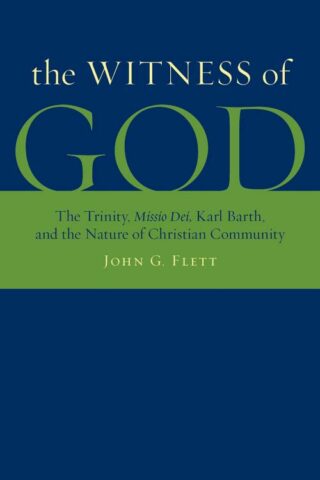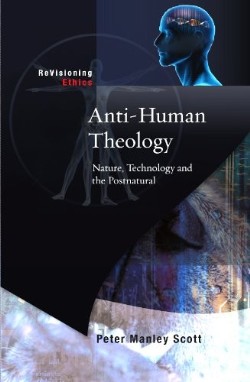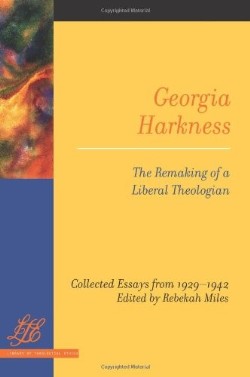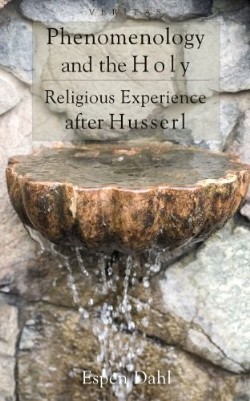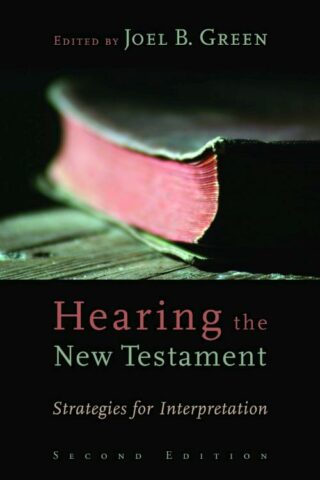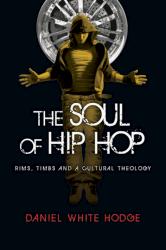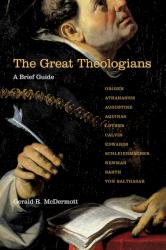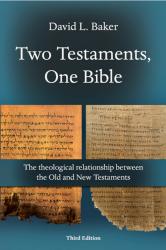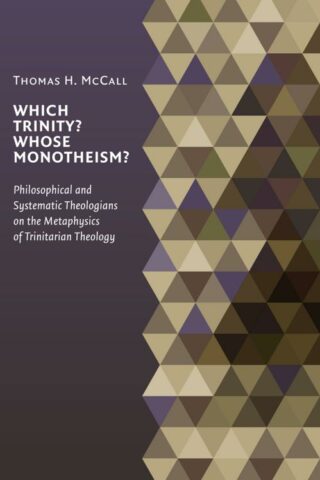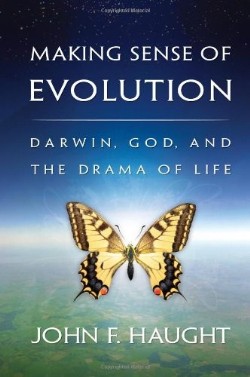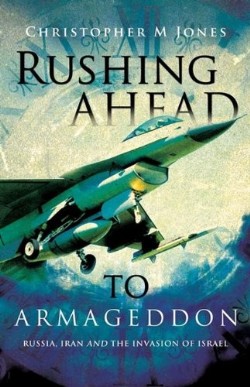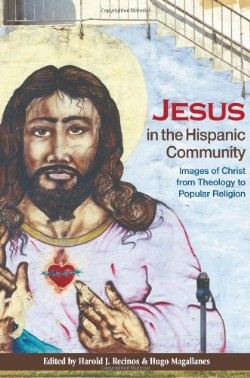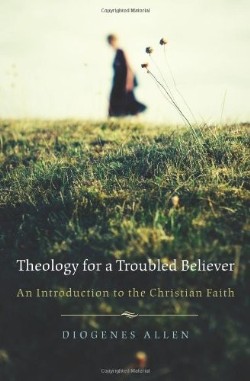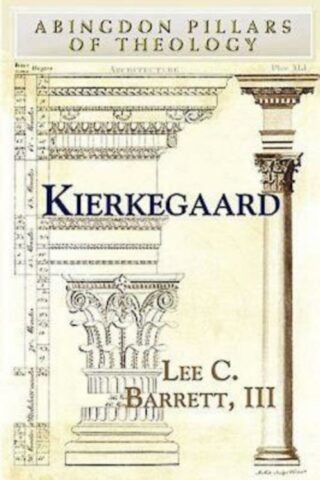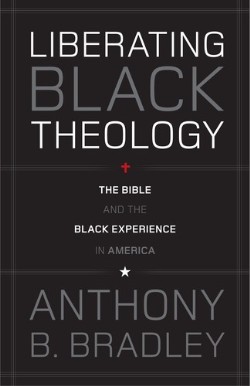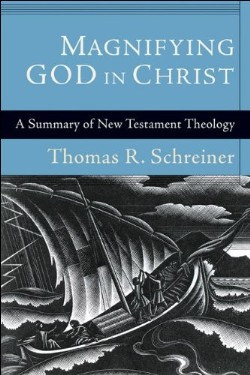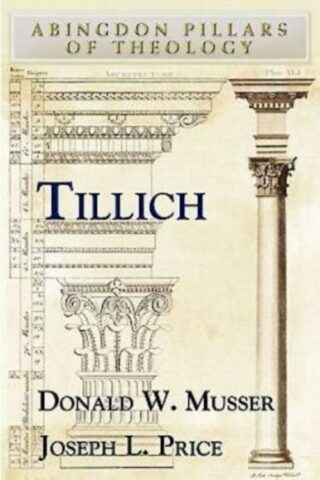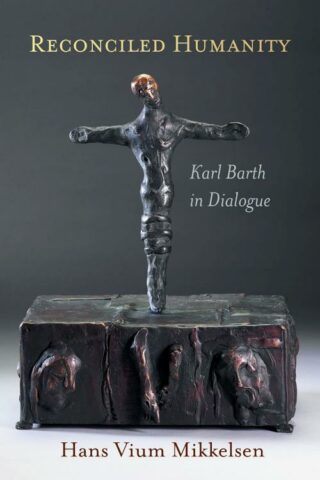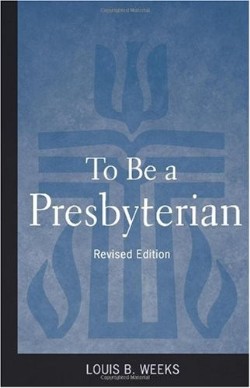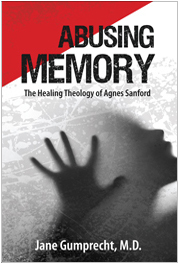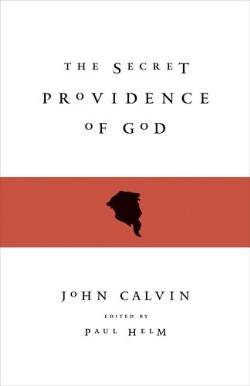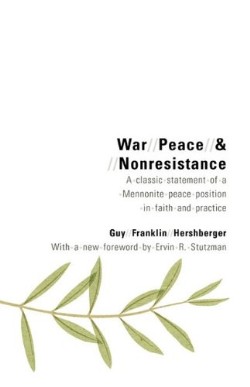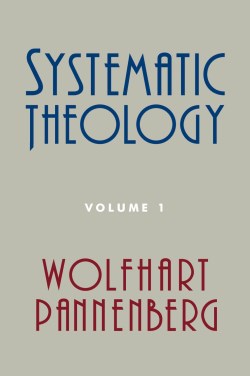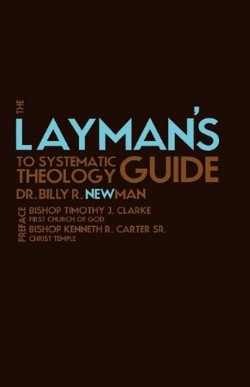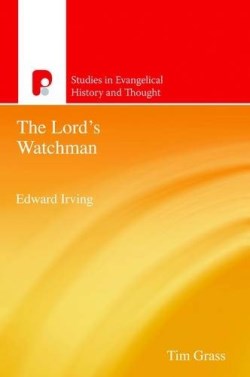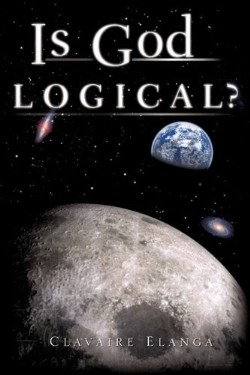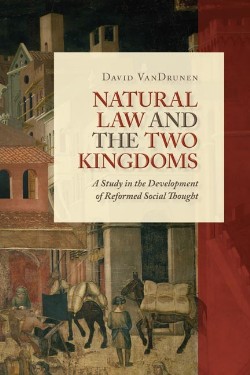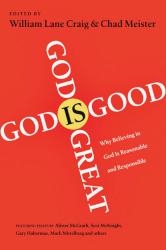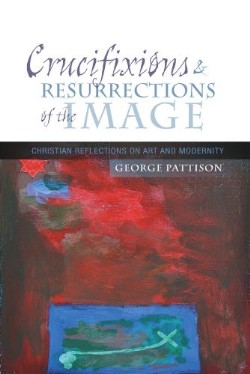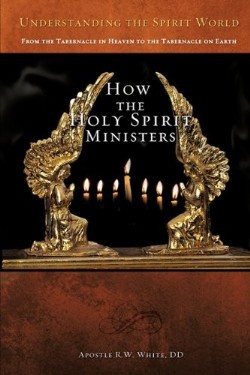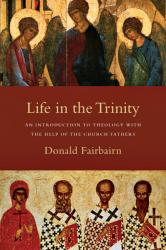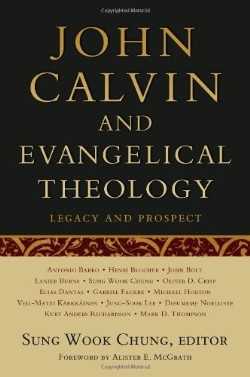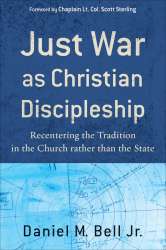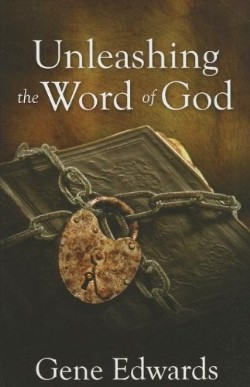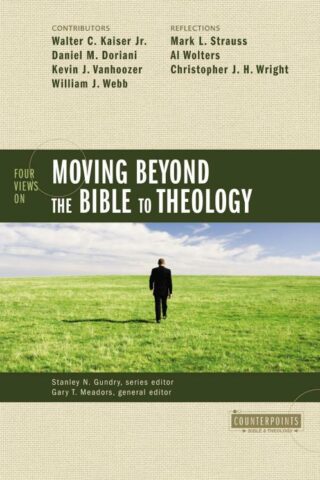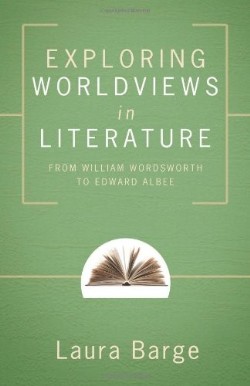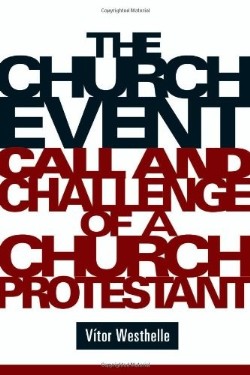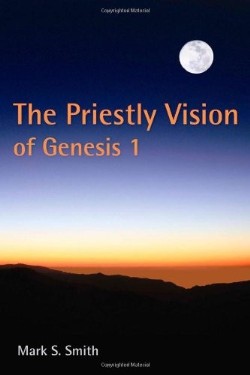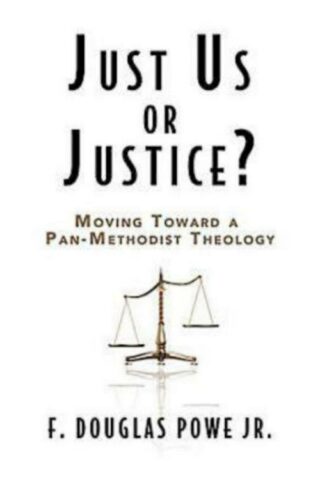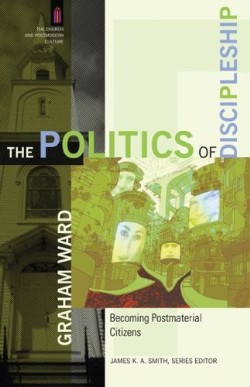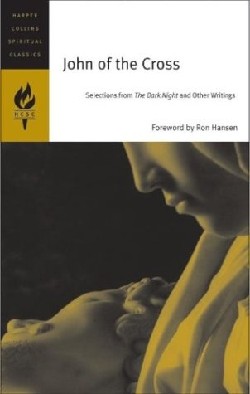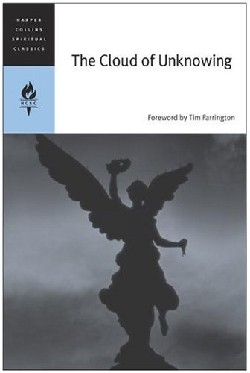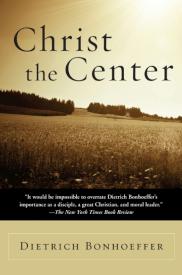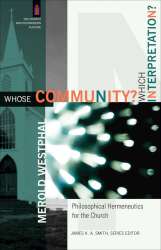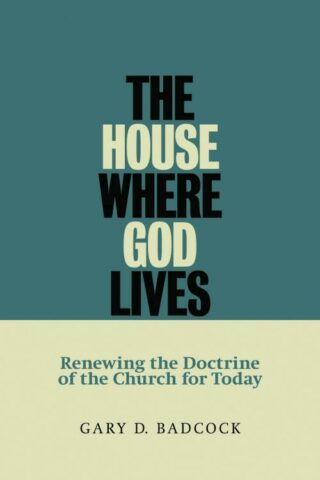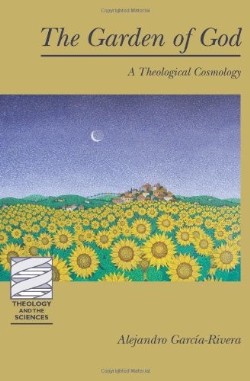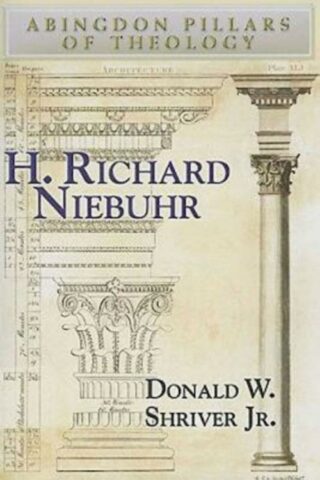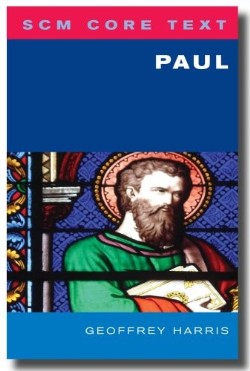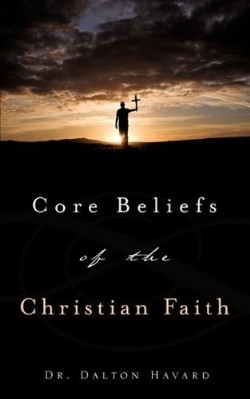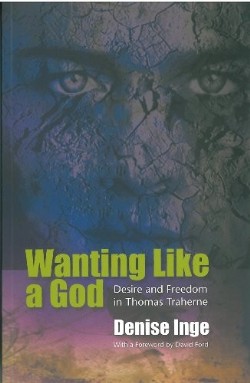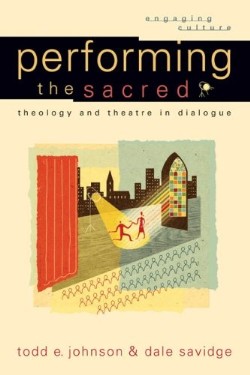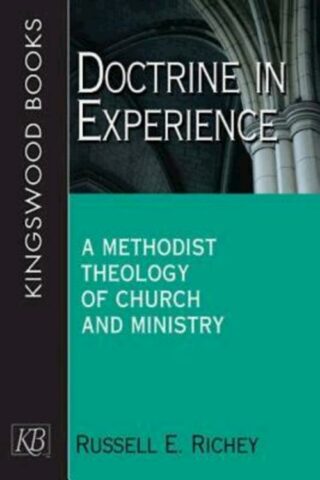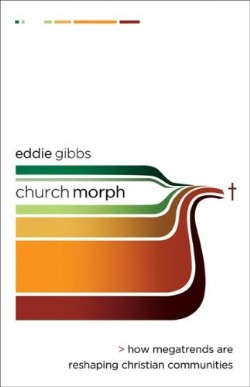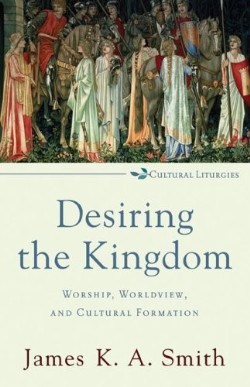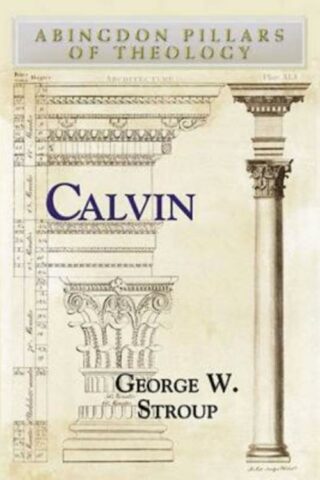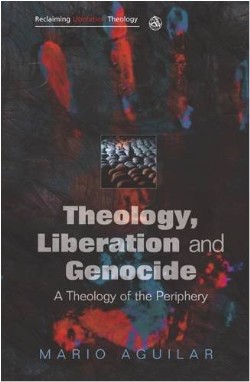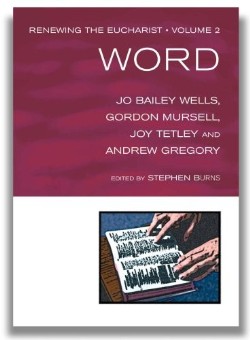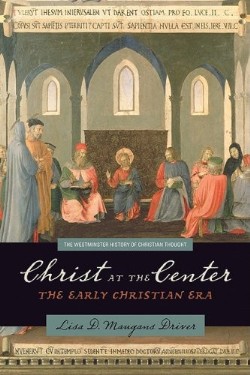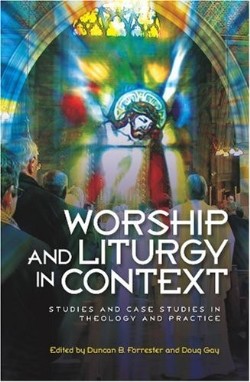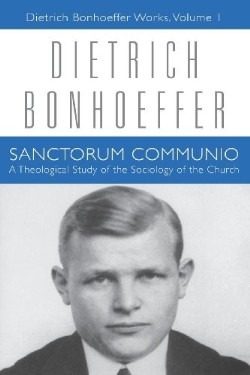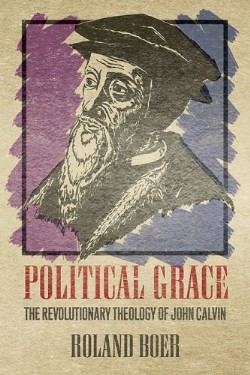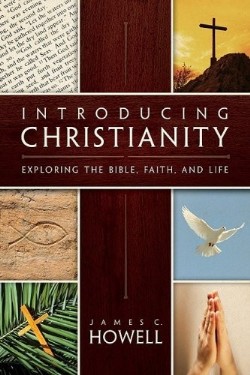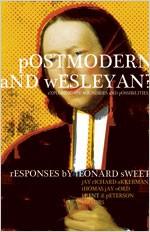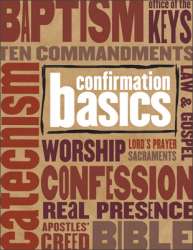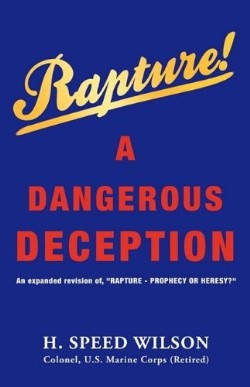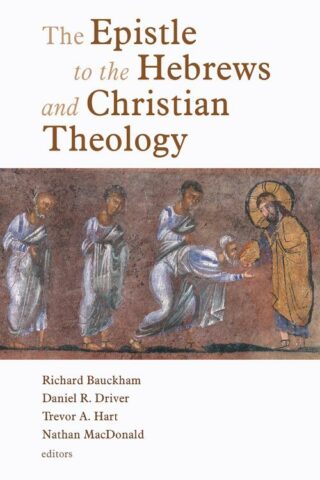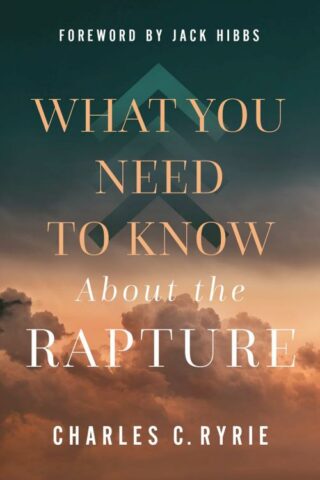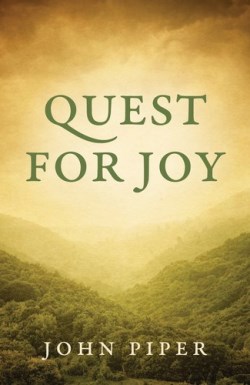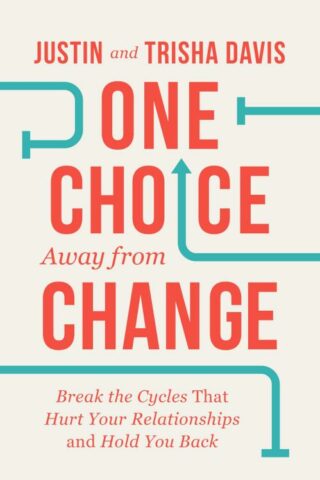Theology (Exegetical Historical Practical etc.)
Showing 1001–1100 of 2198 resultsSorted by latest
-
Living Hope : The Future And Christian Faith
$20.00“Eschatology,” the theological name for the study of the end-time, often conjures up frightening concepts of the rapture, the final judgment, heaven and hell, Armageddon, and the anti-Christ. Fortunately, author David Jensen’s theological approach offers a brighter perspective on the end-time as a time of hope when we’ll see the full glory of the Kingdom of God, the resurrection of the body, and Christ’s promised return.
Add to cartin stock within 3-5 days of online purchase
-
Church And Countryside
$35.00“While in recent years much attention among theologians has been focused on the city and on what makes a good city, much of (church) life in Britain takes place in the context of rural communities. In the context of their daily work, clergy find themselves confronted with complex ethical, political and social issues. “”Church and Countryside”” maps out a rural theology that addresses some of the concerns faced by Britain’s rural population and those who minister to them. While other books in this field focus on practical (mission-orientated) aspects of ministry in the countryside, Tim Gibson offers a discussion of some of the relevant issues from the point of view of Christian ethics. An accessibly written and thoroughly researched piece of contextual theology that should become core reading for mission and ministry courses in theological colleges and ministry training courses.”
Add to cartin stock within 3-5 days of online purchase
-
Answer To All Your Questions About The Book Of Revelation
$33.73Scientists have always spoken with very limited human knowledge and reasoning, but this book speaks with the authority of God. This book opens the door of illumination so that every person can receive the gospel as they watch the Son of God, Jesus Christ, come to earth as a man, die for their sins as the sacrificial Lamb of God and then conquer death and the grave with His resurrection.
Add to cartin stock within 3-5 days of online purchase
-
Answer To All Your Questions About The Book Of Revelation
$21.23Scientists have always spoken with very limited human knowledge and reasoning, but this book speaks with the authority of God. This book opens the door of illumination so that every person can receive the gospel as they watch the Son of God, Jesus Christ, come to earth as a man, die for their sins as the sacrificial Lamb of God and then conquer death and the grave with His resurrection.
Add to cartin stock within 3-5 days of online purchase
-
Discovering The Bible
$28.73Dr. James F. Lacy grew up in Geneva, a small town in South Alabama. He attended Alabama Polytechnic Institute (now Auburn University) graduating in 1953 with a degree in Agricultural Science and a commission as a Second Lieutenant in the United States Army. He was immediately called to active duty, serving more than twenty years. In addition to several state-side assignments, he also served in Europe, Korea and Vietnam. After his retirement from the army in 1974, he taught for more than twenty years at Chattahoochee Valley Community College. In addition to teaching history and geography he was chairman of the Social Sciences Department.
Dr. Lacy’s educational experiences include his BS from API, a MS from Tulane in International Relations and a PhD in History from Auburn University. His foreign languages include Spanish and Portuguese. Dr. Lacy has post-graduate work in geography.
In the process of preparing for writing this book he traveled to Israel four times. He has traced two of Paul’s three missionary journeys. Throughout Dr. Lacy’s entire life, he has been involved in Bible study and teaching. For more than fifty years he has taught at least one Bible study each week and this includes the years spent in Korea and Vietnam, where regular Bible study was not easy. For the last ten years Dr. Lacy has taught at least three, sometimes four, Bible studies per week.
Dr. Lacy is a lay person. His main purpose in writing this history of the Bible was to provide lay people with a comprehensive history of the scriptures that would be easy for lay people to read and understand.
Add to cartin stock within 3-5 days of online purchase
-
Commanding Grace : Studies In Karl Barths Ethics
$33.99In this seminal volume, contemporary theologians revisit the theological ethics of Karl Barth as it bears on such topics as the moral significance of Jesus Christ, the Christian as ethical agent, the just war theory, the relationship between doctrines of the atonement and modern penal justice systems, the virtues and limits of democracy, and the difference between an economy of competition and possession and an economy of grace.
Add to cartin stock within 3-5 days of online purchase
-
Melody Of Faith
$30.99The Liturgy Of Creation
The Luminous Moment Of The Apocalypse
Divine Therapy
Mother Of God, Mother Of Holiness
The Victorious Cross
The Rhythm Of The Resurrection
Additional Info
In the Orthodox Christian faith the elements of liturgy, scripture, hymnody, and iconography are the instruments or voices of a melody of faith. In The Melody of Faith Vigen Guroian introduces his readers to the fundamental beliefs of Orthodox Christianity using the metaphor of melody. / Often drawing on his personal religious experience for illumination, Guroian weaves together the themes of creation and new creation, beginning and end, sin and holiness, Incarnation and deification, sacrifice and salvation. By discussing several iconography traditions and illuminations from ancient gospels, he illustrates how Orthodox Christianity expresses theology in art as well as through language. / The Melody of Faith is a book that not only reflects the spirit of Orthodox Christianity but that also takes the reader to the theological heart of the Orthodox faith.Add to cartin stock within 3-5 days of online purchase
-
Lies Sex And Politicians
$30.00Many Christians write off the Old Testament as an outdated rule book which has little to say to them and has been superseded by the New Testament and the Christian tradition.Lies, Sex and Politicians is for those thinking Christians who want to ‘recapture’ the Old Testament from those who, in wanting to promote it in a particular way (e.g. in the homosexuality debate), have closed it off to the majority.John Holdsworth offers a way into the Old Testament through linking some of the themes found in this very diverse collection of texts with themes found in contemporary culture. This in turn enables readers to engage with the Old Testament as a resource for doing Christian theology and ethics today.Each chapter concentrates on a text-based theme. This leads to exegetical input and discussion of the wider theme in the light of contemporary scholarship. The text is then approached from the direction of some element of contemporary culture or concern. A final suggested exercise aims to bring these elements together in a cr
Add to cartin stock within 3-5 days of online purchase
-
Mark : A Theological Commentary On The Bible
$47.00Placher’s commentary offers theological perspectives on what most scholars believe to be the earliest Gospel. The result is an accessibly written commentary focusing on the questions Mark’s Gospel raises for us today. This is sure to be of immense value for all who want to hear the astonishing story Mark tells about “the good news of Jesus Christ” (Mark 1:1).
This new series will build on a wide range of sources in areas such as biblical studies, the Christian tradition, popular culture, and the language of Christian worship. Whereas most commentaries emphasize the Bible’s ancient meaning, Belief concentrates on the living Word relative to the theological and ethical concerns of today. Noted scholars representing diverse backgrounds and perspectives will ensure a fresh and invigorating approach to the Bible. Nearly half of the volumes in the series will be written by women, and almost a third will be written by persons of color. Authors include Michael Battle, Anna Case-Winters, Harvey Cox, Miguel De La Torre, Boyung Lee, Thomas G. Long, Daniel Migliore, Stephanie Paulsell, Marcia Riggs, Donald Saliers, Ronald Sider, Leanne Van Dyk, and Allen Verhey.Add to cartin stock within 3-5 days of online purchase
-
Matrix Of Christian Ethics
$33.99In today’s world, many Christians don’t know how to live ethically, let alone know what ethics is. Christian ethics probes our deepest sensibilities as humans and how we seek the good for others as well as for ourselves as followers of Christ. This book begins to delve into this relevant and contemporary subject through methodological reflection on the commands, purposes, values, and virtues of Christian life in today’s context.
To address these factors, an integrative approach to ethics is proposed, borrowing from classical ethical models such as consequential ethics, principle ethics, virtue ethics, and value ethics. This is what the authors call a matrix of Christian ethics. This matrix will be played out in a variety of ways throughout the book, from the discussion of the postmodern situation of ethics and values to current proposals for the ongoing development of Christian ethics today. It concludes with some practically oriented guidelines to help the reader consider contemporary ethical questions and conflicts within a framework of biblical wisdom, in view of the ongoing work of the Holy Spirit in the lives of followers of Christ.
Add to cartin stock within 3-5 days of online purchase
-
Paradox Of Disability
$24.99The village of Trosly-Breuil in northern France is home to one of the world’s thirty-four L’Arche communities, where people with and without intellectual disabilities live and work together. In 2007 an impressive assortment of social scientists and theologians gathered there to offer responses to a question posed by the worldwide community’s cofounder, Jean Vanier: “What have people with disabilities taught me?” Their answers are here presented in a diverse collection of essays.
Editor Hans Reinders emphasizes that these analyses and reflections – like the L’Arche communities that inspired them – are not meant to set apart those with disabilities. Rather, they encourage people of all abilities humbly to acknowledge that to be human is to live with brokenness and limitation – and that to experience true community we must first learn to receive other people as God’s gift.
Add to cartin stock within 3-5 days of online purchase
-
Beyond Pentecostalism : Crisis Of Global Christianity And The Renewal Of Th
$35.99At the beginning of the twenty-first century, Christianity faces one of its greatest opportunities as well as one of its greatest challenges – the formulation of a global theology. In Beyond Pentecostalism Wolfgang Vondey argues that Pentecostal thought and praxis represent an indispensable catalyst for the realization of this task.
Accentuating Pentecostalism as a manifestation of what he calls the crisis of global Christianity, Vondey describes the elements of this crisis – manifested chiefly in theology’s turn toward a performance-oriented enterprise – and suggests that the task of overcoming the crisis demands an integration of Pentecostalism in the global theological agenda. This task will inevitably push Christianity beyond the boundaries of the classical Pentecostal tradition. In fact, Vondey suggests, Pentecostalism itself is in the process of going beyond its own historical, theological, sociocultural, and institutional boundaries.
Informing Vondey’s study throughout is the provocative metaphor of theology with Pentecostal resources as closer to “play” than to “performance.” He therefore engages the social sciences, psychology, philosophy, and ritual and cultural studies as major dialogue partners in developing the theological task for both the Pentecostal and the broader ecumenical global community. Vondey’s goal is not a “pentecostalization” of Christianity but rather a renewal of the theological landscape in light of the significance of Pentecostal voices, thoughts, and practices worldwide.
Add to cartin stock within 3-5 days of online purchase
-
Razing Hell : Rethinking Everything Youve Been Taught About Gods Wrath And
$24.00Does the idea of hell haunt your dreams and disturb your sleep? Have you ever wondered at the justice (or injustice) of it all? Are you confounded by a God who deems it necessary to send the majority of humanity to burn there forever? If so, then this book is for you.
Seventy percent of Americans believe in hell, as do ninety-two percent of those who attend church every week. Clearly, it’s a hot topic. Baker offers readers a safe space to contemplate tough issues as we rethink our traditional views of hell. In her candid and inviting style Baker explores and ultimately refutes many traditional views of hell, presenting instead theologically sound ways of thinking that are more consistent with our image of God as a loving creator who desires to liberate us from sin and evil.This is an excellent selection for general readers, students, pastors, professors, and grief counselors, and will provide clarity for those with questions about hell, God’s judgment, and what happens to us when we die.
Add to cartin stock within 3-5 days of online purchase
-
Justified In The Spirit
$35.99A pneumatological, Pentecostal-friendly theology of justification by faith – broadly Trinitarian, ecclesiological, and eschatological in orientation
The classic debate on justification by grace through faith has historically been limited to the question of whether justification is the reception of forgiveness by faith alone (classically Protestant) or the personal transformation that occurs as we cooperate with grace (traditionally Catholic). While some more recent ecumenical discussions have sought to link the two, many of these efforts have been criticized as patchwork solutions that do not develop precisely how forgiveness and personal transformation via grace find integration under the larger notion of the justification of the sinner. Frank Macchia here seeks to fill that lacuna.
Inspired by the typically Pentecostal accent on the indwelling of the Holy Spirit, Justified in the Spirit sets both Protestant and Catholic views within a larger framework, namely, the Spirit of Life as the realm of God’s favor. Since the Holy Spirit is the power of love and communion within the Trinity and between us and God, a pneumatological accent ultimately locates the justification of the sinner within the embrace of the Triune God as a communion of persons. Therefore, the Christological, eccelesiological, social, and ecological implications of justification can be fruitfully developed from the broad spaces of this Trinitarian communion.
In identifying divine favor with the realm of the Holy Spirit, Macchia here constructs a unique pneumatological theology of justification by faith that is broadly Trinitarian, ecclesiological, and eschatological in orientation.
Add to cartin stock within 3-5 days of online purchase
-
Revelation Of Angelic Creation
$33.73Move over Augustine! Look out Aquinas! This is the first exegetical work on day one of Genesis to agree with all Scripture. With the profound simplicity of a layman yet the penetrating density of a mystic, this text is a fountain of Scriptural revelation to guide both heart and mind.
Unparalleled, “The Revelation of Angelic Creation” for the first time draws back the veil on “what” Wisdom is and its composite origin (the first hypostasis); the angelic creation: how it came to be and its composite nature; the “when,” “how,” and “why” of the angelic rebellion and fall, along with the restructuring of the unseen cosmos in the aftermath of said rebellion. Also, for good measure, the two-yes two!-gardens of Eden will be exposed.
This work will set new theological precedence in all these areas and much more. Scriptural discourse is now forever altered. That which was spoken in the darkness of pre-creation, finally, is brought to light.
Add to cartin stock within 3-5 days of online purchase
-
Biblical Building Blocks
$24.98This is an easy-to-use get-to-the-point training manual for all Christians and anyone seeking answers. Knowing what you believe in and why is critical to your entire existence. Everyone needs to invest time and effort in learning what and why they believe in the faith they have chosen to follow or not follow.
Add to cartin stock within 3-5 days of online purchase
-
Left Behind Is The Point Of No Return
$15.61If you get * Left Behind *
Heb 6:4 For it is impossible for those who were once enlightened, and have tasted of the heavenly gift, and were made partakers of the Holy Ghost,
5 And have tasted the good word of God, and the powers of the world to come,
6 If they shall fall away, to renew them again unto repentance; seeing they crucify to themselves the Son of God afresh, and put him to an open shame.The book of Hebrews describes those who join a physical church, enjoyed the fellowship, felt the present of the Holy Ghost, tasted the good Word of God and entertained the hope of the world to come, but turned away from the truth. They only tasted the good Word of God. They did not eat the word of God. They did not assimilate: “(to take in and appropriate as nourishment, absorb into the system or to take into the mind and thoroughly comprehend ),” the word of God.
Jesus said;
John 6:48 I am that bread of life.
50 This is the bread which cometh down from heaven, that a man may eat thereof, and not die.
51 I am the living bread which came down from heaven: if any man eat of this bread, he shall live for ever: and the bread that I will give is my flesh.John 6:53 Then Jesus said unto them, Verily, verily, I say unto you, Except ye eat the flesh of the Son of man, and drink his blood, ye have no life in you.
54 Whoso eateth my flesh, and drinketh my blood, hath eternal life; and I will raise him up at the last day.Add to cartin stock within 3-5 days of online purchase
-
Revelation Of Angelic Creation
$21.23Move over Augustine! Look out Aquinas! This is the first exegetical work on day one of Genesis to agree with all Scripture. With the profound simplicity of a layman yet the penetrating density of a mystic, this text is a fountain of Scriptural revelation to guide both heart and mind.
Unparalleled, “The Revelation of Angelic Creation” for the first time draws back the veil on “what” Wisdom is and its composite origin (the first hypostasis); the angelic creation: how it came to be and its composite nature; the “when,” “how,” and “why” of the angelic rebellion and fall, along with the restructuring of the unseen cosmos in the aftermath of said rebellion. Also, for good measure, the two-yes two!-gardens of Eden will be exposed.
This work will set new theological precedence in all these areas and much more. Scriptural discourse is now forever altered. That which was spoken in the darkness of pre-creation, finally, is brought to light.
Add to cartin stock within 3-5 days of online purchase
-
Neither Calendar Nor Clock
$28.99Adoption of a new confession is a rare event in church history. This book offers an astute inside look at the contemporary Belhar Confession, which arose out of the struggle against apartheid and was drafted in 1982 by the “colored” Dutch Reformed Mission Church in South Africa.
With clarity and passion Piet Naude presents and comments on the Belhar texts themselves, explores the historical background and theological significance of Belhar, and discusses its continuing reception throughout the world. He also relates the Belhar Confession’s relevance to such current global issues as gender relations, economic justice, and the HIV/AIDS crisis.
The only up-to-date English-language book on the Belhar Confession – which is gaining significant recognition among North American churches – Neither Calendar nor Clock ultimately shows how this singular African confession powerfully articulates the gospel for the universal church today.
Add to cartin stock within 3-5 days of online purchase
-
Calvins Ladder : A Spiritual Theology Of Ascent And Ascension
$36.99Are Christians truly invited to share in God or just in his gifts? The language of “participation” has been hotly debated for centuries, many Protestants protesting that aspiring to share in God is akin to attempting to ascend to his level. John Calvin’s theology is often brought in to support this contention. Here Julie Canlis argues that to do so reflects a complete misunderstanding of Calvin. In fact, she says, it is precisely Calvin’s inclusion of participation that makes his theology so robust and spiritually enduring.
Calvin’s Ladder traces the theme of participation in early Christian spirituality, then reveals how Calvin reworks it into the heart of his Protestant manifesto on theology. This groundbreaking book suggests an entirely distinctive way of conceiving the relation between God and humanity, challenging not only old caricatures of Calvin but also our own self-portraits.
Add to cartin stock within 3-5 days of online purchase
-
From Nicaea To Chalcedon (Expanded)
$50.00Preface To Second Edition
1. The Birth Of Church History And Its Sequel
2. Athanasius And The Shaping Of Nicene Theology
3. Heroes Of The Faith: The Literature Of The Desert
4. The Cappadocians
5. The Temper Of The Times: Some Contrasting Characters Of The Late Fourth Century
6. The Literature Of Christological Controversy
IndexAdditional Info
In this volume, a world-renowned scholar of early Christianity updates and expands her classic survey of the writers and writings of the golden age of Greek patristic theology. This reliable guide to Christian literature from the late third century to the mid fifth century is more accessible than specialized works on individual authors but more informative than coverage provided by general histories and reference works. The second edition has been revised throughout for use by a new generation of students and scholars and includes a new chapter and updated bibliographies.Add to cartin stock within 3-5 days of online purchase
-
Baptism In The Reformed Tradition
$44.00This premier work considers the development of the doctrine of baptism in the Reformed tradition. John Riggs studies the major early Reformers, concentrating on Calvin’s views, and then traces the development of the doctrine through the Reformed Confessions, Reformed Orthodoxy, and into Schleiermacher’s thought. Twentieth-century debates are discussed as they illuminate earlier tensions and differing views from the past.
Add to cartin stock within 3-5 days of online purchase
-
Thinking In Tongues
$22.99In this inaugural volume of the groundbreaking, cutting-edge Pentecostal Manifestos series, James K. A. Smith offers considered advice to pentecostal philosophers and, even more, pertinent pentecostal advice to Christian philosophers.
Maintaining that implicit in pentecostal and charismatic spirituality is a tacit worldview or “social imaginary,” Smith unpacks and articulates the key elements of this pentecostal worldview and then explores their implications for philosophical reflection on ontology, epistemology, aesthetics, language, science, and philosophy of religion. In each case, Smith demonstrates how the wisdom of pentecostal spirituality makes unique contributions to current conversations in Christian philosophy.
Add to cartin stock within 3-5 days of online purchase
-
Is Calvinism Good News
$19.98Doubtless it gives the greatest possible offence to common sense or reason, that God, Who is proclaimed as being full of mercy and goodness, and so on, should of His own mere will abandon, harden and damn men, as though He delighted in the sins and great eternal torments of such poor wretches. It seems an iniquitous, cruel, intolerable thought to think of God; and it is this that has been a stumbling block to so many great men down the ages. And who would not stumble at it? I have stumbled at it myself more than once, down to the deepest pit of despair, so that I wished I had never been made a man.
-Martin Luther(Luther, Martin, The Bondage of the Will, Fleming H. Revell Co., 1957, pg. 217)
Whether some Christians actually delight in what is commonly known as Calvinism or not I do not know, but I do know that many struggle with it. This book is for those who struggle. Come and enjoy the Good News of the simple message: God loved the world so much that He sent His Son, not to condemn it, but to save it. It is His pleasure to reconcile all things to Himself through the blood of Christ. He is not willing that any perish, but that all come to repentance.
Add to cartin stock within 3-5 days of online purchase
-
Luther And The Beloved Community
$48.99Is Christian belief tenable today? Is it possible to be a creedal Christian? With the help of Martin Luther, Paul Hinlicky here explores classical Christian beliefs regarding the person and work of Christ and human nature and destiny. He also counters contemporary objections to creedal faith, from the so-called “new perspective on Paul” to Pope Benedict’s rejection of the Augsburg Confession to the continuing challenge of Marx.
Luther and the Beloved Community does not present Luther’s medieval thought as a possibility for today, but does make him available for the future as a teacher of the faith and a help for tackling contemporary questions of Christian belief. According to Hinlicky, Luther is misused and misunderstood by those of his own tradition and needs to be understood not as “hero of the faith” but rather as the proponent of a beloved community that does not yet fully exist. In performing this makeover, Hinlicky reveals genuine new insights concealed within Luther’s rhetoric.
Add to cartin stock within 3-5 days of online purchase
-
End Of The World According To Jesus
$20.61In this fascinating work, the author draws some amazing and ground-breaking new insights into Bible prophecy from first century Jewish Apocalyticism and then he presents a radical restructuring of the Book of Revelation that clarifies it as no other book. Dr. Morey unravels the seeming contradictions and mystifying puzzles of biblical prophecy using the Jewish hermeneutical principles that Jesus and the Apostles used in their interpretation of Old Testament prophecy. There is no other book like this today. It explains the Mt. Olivet Discourse and the Book of Revelation in such a way that will astound and delight you. It is “must” read for clear-thinking Christians who want to know what will happen at the End of the World according to Jesus.
Add to cartin stock within 3-5 days of online purchase
-
Theologys Strange Return
$35.00For two centuries and more our culture has been secular, and no religious doctrine now plays a constitutive part in any established branch of knowledge. Yet if God is dead, he wont lie down, and reminders of the old faith still pervade our language, the built environment, our art and our literature. Most important, themes of the old theology are currently returning to us in new and strange guises. Thus God, the strict Judge who searches our hearts and demands inner integrity, returns in the critical thinking which makes everyone trained it his own hardest taskmaster. Again, the biblical idea that the world is made by the utterance of language returns in modern poetry and linguistic philosophy.aaBy assembling such reminders, Don Cupitt shows that a surprising amount of traditional Christian belief u including a new Grand Narrative, and a non-metaphysical theology u is currently returning to us in secular form.
Add to cartin stock within 3-5 days of online purchase
-
Gods Formula For Kingdom Living
$31.23Pastor Eugene Hartley is a dynamic Bible Teacher with over 53 years of evangelizing and pastoring churches. He started 6 churches and built 15 buildings for Christ. He is currently the pastor of the CornerStone Church in Stapleton, Alabama. This is a church where Jesus is Lord and your Eternity has already begun!
Trail of Satan
The Missing Link
Complaining Souls under the Alter
3 People who told the Story of Creation for the first 2500 years
Where have the Dead gone since Adam?
What became New in 70 AD.
Was All the Scriptures fulfilled by 70 AD?
Does the Bible-History and Science Agree?
Where did all the Races come from?
Has The Great Tribulation already happened?
Who is the Antichrist?
Revelation Fulfilled by 70 AD 83 years in building the Jewish Temple
The Sinless Conscience The Perfection of The Believers
The Missing Signs of the Last Days. End of The World or End of an Age?Add to cartin stock within 3-5 days of online purchase
-
God As Author
$19.99God as Author takes a thoughtful literary approach to understanding the Gospel. Gene Fant writes in the preface:
“Most of us have heard that Christ is ‘the Author and Finisher of our faith’ (Hebrews 12:2), so it makes sense that the Gospel would be God’s story. As many a church message board has noted so succinctly, ‘History is His Story.’ In our easy discussions of special revelation, I cannot help but wonder if we
have missed something awe-inspiring that may be revealed by a reversal of the lens that we turn toward narrative. Perhaps the Gospel is not just like a story; perhaps story, narrative in general, is like the Gospel. My clear conviction is that something stands behind the power of narrative. In fact, I believe that Someone stands behind it. There is an Author whose skill and grace imbues the broad range of the stories that we tell. There is a Father who gave us a story to help us understand our place in this world, a story that points back to Him. His story is, in many ways, the only story that we know. When we use that realization as a foundation for interpreting and generating narrative, it changes everything, including ourselves.”Add to cartin stock within 3-5 days of online purchase
-
Practice Resurrection Study Guide (Student/Study Guide)
$14.99Though bringing people to new birth in Christ through evangelism is essential, says Peterson, isn’t it obvious that growth in Christ is equally essential? Yet the American church does not treat Christian growth and character formation with equivalent urgency. We are generally uneasy with the quiet, obscure conditions in which growth takes place, and building maturity in Christ too often gets relegated to footnote status in the text of our lives.
In Practice Resurrection Peterson brings the voice of Scripture – especially Paul’s letter to the Ephesians – and the voice of the contemporary Christian congregation together to unpack what it means to fully grow up “to the stature of Christ.” Peterson’s robust discussion will move readers to restore transformed Christian character to the center of their lives.
This helpful study guide is designed to enable small groups in schools or churches – or even individuals – to delve deeper into the timely wisdom of Practice Resurrection: A Conversation on Growing Up in Christ. Peter Santucci here breaks up Peterson’s book into thirteen “sessions,” each of which contains a summary, select quotes to consider, questions for interaction, and a prayer drawn from the text of Ephesians that is covered in the corresponding book chapter.
Add to cartin stock within 3-5 days of online purchase
-
Contemporary Christologies : A Fortress Introduction
$40.00Preface
Introduction
1. Jesus As Revealer
Karl Rahner, Dorothee Soelle, Roger Haight2. Jesus As Moral Exemplar
Rosemary Radford Ruether, Carter Heyward, Mark Lewis Taylor3. Jesus As Source Of Ultimate Hope
James Cone, Jon Sobrino, Elizabeth Johnson4. Jesus As The Suffering Christ
Jurgen Moltmann, Douglas John Hall, Marilyn McCord Adams5. Jesus As Source Of “Bounded Openness”
Raimon Panikkar, John B. Cobb Jr., Jacques DupuisConclusion: Fifteen Christologies Later
Glossary
Notes
IndexAdditional Info
While many know of the signal contributions of such twentieth-century giants as Paul Tillich or Karl Barth or Pierre Teilhard de Chardin, the important work since their time often goes unremarked until some major controversy erupts. Here is a smart and helpful survey of the chief approaches and thinkers in today”s understanding of the person, significance, and work of Jesus Christ.Schweitzer offers an insightful introduction to the contemporary context of Christology, in which basic questions in the discipline (and soteriology) are being rethought in light of globalization, postmodernity, and the contemporary experience of evil. He then offers a kind of typology of the current approaches and voices.
Schweitzer”s volume concludes with a reflection on the recent past and present imperatives of a discipline that virtually defines what Christianity has to offer the present age.
Add to cartin stock within 3-5 days of online purchase
-
Witness Of God
$39.99The Witness of God is a constructive revision of Trinitarian missio Dei theology. In it John G. Flett argues that the neglect of mission as a theological locus has harmful consequences both for understanding the nature of God’s connection with world and the corresponding nature of the Christian community.
Add to cartin stock within 3-5 days of online purchase
-
Anti Human Theology
$104.00Peter Manley Scott offers a theological and ethical reading of our present situation. Due to the vigour of its re-engineering of the world by its technologies, western society has entered into a postnatural condition in which standard divisions between the natural and the artificial are no longer convincing. This postnatural development is liberating – both theologically and politically. Scott develops an ‘anthropology’ that does not repeat Christianity’s history of anthropocentrism but instead criticises it by exploring the mutual entanglement of animals, humans and other creatures. Deeply disrespectful of traditional centres of power, his ethical critiques of ‘pioneering’ technologies expose their anti-social and anti-ecological tendencies and identify possible paths of oppositional political action. This is ethical theology at its best: deeply informed by theological tradition, immersed in contemporary political-technological problematics in radically oppositional ways, and yet fiercely hopeful of a good outcome for anim
Add to cartin stock within 3-5 days of online purchase
-
Georgia Harkness : The Remaking Of A Liberal Theologian
$40.00Georgia Harkness (1891-1974) was a Methodist theologian and the first American woman to teach theology at the seminary level. A leader in the ecumenical movement, Harkness strove to make theology accessible to the laity.
This book is a compilation of writing from early in her career that appeared in publications such as The Christian Century, Religion in Life, and Christendom. Although her theology shifted somewhat during these years, Harkness held fast to her belief that liberal theology would remain “the basic American theology,” a prediction that was out of step in the 1930s but is growing more credible today.Add to cartin stock within 3-5 days of online purchase
-
Phenomenology And The Holy
$100.00SCM Veritas engages in critical and original questions of pressing concern to both philosophers and theologians. The major concern of all books in this series is to display a rigorous theological critique of categories not often thought to be theological in character, such as phenomenology or metaphysics which are mainly considered as philosophical categories. All the books in this series aim to illustrate that without theology, something essential is lost in our accounts of such categories not only in the abstract but in the way in which we inhabit the world. Phenomenology and the Holy is a study of the holy which attempts to find this both in the ordinary and in the sublime, thus challenging the reduction of the holy to a discrete and separated field of experience. Phenomenology is a key area of twentieth-century philosophy in which there is a wide interest, not only among philosophers but also among theologians and religious studies scholars.
Add to cartin stock within 3-5 days of online purchase
-
Hearing The New Testament (Reprinted)
$44.99The Challenge Of Hearing The New Testament
Joel B. GreenTextual Criticism Of The New Testament
Bart D. EhrmanHistorical Criticism And Social-Scientific Perspectives In New Testament Study
Stephen C. BartonThe Relevance Of Extracanonical Jewish Texts To New Testament Study
Richard BauckhamThe Relevance Of Greco-Roman Literature And Culture To New Testament Study
Loveday C. A. AlexanderTraditio-Historical Criticism
Holly J. CareyThe Use Of The Old Testament By New Testament Writers
Richard B. Hays And Joel B. GreenGenre Analysis
James L. BaileyRhetorical Criticism
C. Clifton BlackModern Linguistics And Word Study In The New Testament
Max TurnerDiscourse Analysis And New Testament Interpretation
Joel B. GreenNarrative Criticism
Mark Allan PowellThe Reader In New Testament Interpretation
Kevin J. VanhoozerFeminist Criticism
F. Scott SpencerAfrican American Criticism
Emerson B. PoweryLatino/a Hermeneutics
Efrain AgostoReading The New Testament In Canonical Context
Robert W. WallThe New Testament, Theology, And Ethics
Stephen E. FowlAdditional Info
A distinguished group of scholars here introduces and illustrates the array of approaches and methods used in New Testament study today. Standard approaches – text criticism, historical approaches, etc. – appear side by side with newer approaches – narrative criticism, Latino-Latina hermeneutics, theological interpretation of the New Testament, and more. Each chapter introduces a particular approach and then demonstrates how students and pastors can best use it. Five passages from different parts of the New Testament are used as sample texts throughout the book in order to facilitate understanding of the differences among the interpretive strategies. / An instant classic when first published in 1995, Hearing the New Testament has now been revised and updated, including rewritten chapters, new chapters, and new suggestions for further reading.Add to cartin stock within 3-5 days of online purchase
-
2 Testaments One Bible (Expanded)
$41.99David L. Baker outlines the problem of the relationship between the Testaments, surveys the relevant history of interpretation, critically examines four main approaches and considers four key themes. This new edition has been thoroughly revised, updated and expanded.
Add to cartin stock within 3-5 days of online purchase
-
Which Trinity Whose Monotheism
$33.99The last few decades have witnessed a renaissance of Trinitarian theology. Theologians have worked to recover this doctrine for a proper understanding of the God and for the life of the church. At the same time, analytic philosophers of religion have become keenly interested in the Trinity, engaging in vigorous debates related to it. To this point, however, the work of the two groups has taken place in almost complete isolation from one another. Which Trinity? Whose Monotheism? Seeks to bridge that divide. / Thomas H. McCall compares the work of significant philosophers of religion – Richard Swinburne, Brian Leftow, and others – with that of influential theologians such as Ji 1/2rgen Moltmann, Robert Jenson, and John Zizioulas. He then evaluates several important proposals and offers suggestion for the future of Trinitarian theology. / There are many books on the doctrine of the Trinity, but no other book brings the concerns of analytic philosophers of religion into direct conversation with those of mainstream theologians.
Add to cartin stock within 3-5 days of online purchase
-
Making Sense Of Evolution
$29.00Evolution makes good scientific sense. The question is whether it makes good theological sense as well. Christians who find evolution contrary to faith often do so because they focus solely on the issues of the world’s design and the notion of the gradual descent of all life from a common ancestry. But that point of view overlooks the significance of the dramatic narrative going on beneath the surface. What evolution is has become more important than what it means. Haught suggests that, rather than necessarily contradicting one another, theologians and Darwinian scientists actually share an appreciation of the underlying meaning and awe-inspiring mystery of evolution. He argues for a focus on evolution as an ongoing drama and suggests that we simply cannot–indeed need not–make complete sense of it until it has fully played out.
Ultimately, when situated carefully within a biblical vision of the world as open to a God who makes all things new, evolution makes sense–scientifically and theologically.Add to cartin stock within 3-5 days of online purchase
-
Rushing Ahead To Armageddon
$24.98The world seems to be on the brink as tensions in the Middle East are escalating daily. Russia is strengthening its ties with China, North Korea, Syria and Iran arming them with sophisticated military weaponry. Russia is building up its armed forces, returning to Cold War military tactics, including reopening ports used by the former Soviet Union. Tensions between Israel and Iran have never been higher with each nation poised to strike against the other in a moment’s notice. Iran’s nuclear ambition is well documented and is becoming a menace on the International stage. With Israel’s very existence at stake, a preemptive strike against Iran’s Russian built nuclear facilities is not out of the realm of possibility. A preemptive strike by Israel could provoke a retaliatory response by Russia and her allies. It seems that in a moment’s notice the events described in Ezekiel 38 & 39 could break out right before our eyes…or is it?
For many years, contemporary prophecy writers have been telling us that we are living in the last days and the Gog and Magog alliance is one sure sign that the Rapture and the Second Coming of Christ are near. However, there is strong biblical evidence that the candidate often identified as Gog, Russia, may not in fact be the candidate that Ezekiel was referring too. Using the Bible as a guide, we can figure out who this obscure person is instead of using today’s newspapers.
With a long history of well documented failed predictions by contemporary prophecy writers, maybe it’s time that we begin to reevaluate today’s popular interpretation of Ezekiel 38 & 39 in light of the Bible.
Add to cartin stock within 3-5 days of online purchase
-
Jesus In The Hispanic Community
$40.00While the insights of Latino /a theologians from Central and South America have gained attention among professional theologians, until now the role of U.S. Latino /a theology in the formation of North American theological identity has been largely unacknowledged.
Exploring both constructive theology and popular religion, these exciting and contemporary essays from top U.S. Latino /a scholars reveal the varieties of religious experience in the United States and the importance of Latino /a understandings of Christ to both academy and community.
Add to cartin stock within 3-5 days of online purchase
-
Theology For A Troubled Believer
$28.00The reasons people are attracted to Christianity and its teachings are many and varied. In this book, Allen hopes “to supply more of the information (pieces of the puzzle) that are needed if a person is to make sense of the Christian understanding of God and our life in the universe.” More philosopher than theologian, Allen writes for “a troubled believer,” dealing with issues and questions that emerge during Christians’ daily lives and in the course of contemplating Christian faith.
Add to cartin stock within 3-5 days of online purchase
-
Kierkegaard
$16.99Abingdon Pillars of Theology is a series for the college and seminary classroom designed to help students grasp the basic and necessary facts, influence, and significance of major theologians. Written by noted scholars, these books will outline the context, methodology, organizing principles, primary contributions, and key writings of people who have shaped theology as we know it today.
Sren Kierkegaard (1813-1855) “foresaw, the power of mass culture to numb the human spirit has only waxed in strength and virulence. The prostitution of religion to legitimate self-aggrandizing ideologies has become a veritable global industry. The reduction of neighbor-love to the most minimal standards of decent behavior has devolved to the point where slightly altruistic celebrities are heralded as Christ-like saints. The deep yearnings of the human heart are being suffocated by trivial amusements, technological toys, and the manipulation of the psyche. Now, perhaps more than ever, Christianity needs an aggravating Socrates to disturb its complicity with a culture of individual self-gratification and corporate self-deification.” from the book
Lee C. Barrett, III is Mary B. and Hanry P. Stager Chair in Theology, Professor of Systematic Theology at Lancaster Theological Seminary in Lancaster, Pennsylvania.
Add to cartin stock within 3-5 days of online purchase
-
Liberating Black Theology
$19.99When the beliefs of Barack Obama’s former pastor, Rev. Jeremiah Wright, assumed the spotlight during the 2008 presidential campaign, the influence of black liberation theology became hotly debated not just within theological circles but across cultural lines. How many of today’s African-American congregations-and how many Americans in general-have been shaped by its view of blacks as perpetual victims of white oppression?
In this interdisciplinary, biblical critique of the black experience in America, Anthony Bradley introduces audiences to black liberation theology and its spiritual and social impact. He starts with James Cone’s proposition that the “victim” mind-set is inherent within black consciousness. Bradley then explores how such biblical misinterpretation has historically hindered black churches in addressing the diverse issues of their communities and prevented adherents from experiencing the freedoms of the gospel. Yet Liberating Black Theology does more than consider the ramifications of this belief system; it suggests an alternate approach to the black experience that can truly liberate all Christ-followers.
Add to cartin stock within 3-5 days of online purchase
-
Magnifying God In Christ
$30.00Thomas Schreiner’s substantial New Testament Theology examined the unifying themes that emerge from a detailed reading of the New Testament canon. This student-level digest of Schreiner’s massive work explores the key themes and teachings of the New Testament in a more accessible and concise way. The book summarizes the findings of Schreiner’s larger work and provides answers to the “so what?” question of New Testament theology. Comprehensive and up to date, this survey is arranged thematically and includes careful exegesis of key passages. It offers students, pastors, and lay readers a big picture view of what the New Testament is all about.
Add to cartin stock within 3-5 days of online purchase
-
Tillich
$17.99Abingdon Pillars of Theology is a series for the college and seminary classroom designed to help students grasp the basic and necessary facts, influence, and significance of major theologians. Written by major scholars, these books will outline the context, methodology, organizing principles, primary contributions, and major writings of people who have shaped theology as we know it today.
“Tillich served as a theological pioneer, exploring boundaries and traversing creatively between the territories of philosophy and theology, between the faith and culture, between Christianity and Buddhism, between the academy and the public. He was a thinker who theorized about everything and who attempted to show what matters and why.” from the book
Add to cartin stock within 3-5 days of online purchase
-
Reconciled Humanity : Karl Barth In Dialogue
$33.99This book clearly shows how Karl Barth still remains a significant voice in the contemporary theological conversation. Hans Mikkelsen sets out to demonstrate the ways in which Barth reinterprets traditional Christianity. In this spirit of dialogue, Mikkelsen reads Barth in conjunction with several other thinkers and theologians, including Schleiermacher, Hegel, Brunner, Buber, Pannenberg, Girard, and Frei.
Reconciled Humanity is a refreshing treatment of Barth, full of complex, intricate, and highly nuanced arguments. Mikkelsen here establishes a connection between tradition and modernity in systematic theology, concerning himself not only with what Barth said but also with how one can – and should – use Barth’s thought in a constructive way today.
Add to cartin stock within 3-5 days of online purchase
-
To Be A Presbyterian (Revised)
$17.00A concise, clearly written, and informative introduction to what it means to be a Presbyterian. An excellent gift for new and prospective members, this volume is especially useful for communicants’ classes and is a must for church libraries.
Add to cartin stock within 3-5 days of online purchase
-
Abusing Memory : The Healing Theology Of Agnes Sanford (Revised)
$16.66Introduction
1. Mother Of Inner Healing
2. A Free Spirit
3. Motives For Healing
4. New Thought, New Age, And Agnes
5. Agnes And God
6. A Blurred Picture Of Jesus
7. Flirting With Spiritism
8. Prayer Of Faith
9. Turning God On
10. Laying On Of Hands
11. Failure Of The Prayer Of Faith
12. “Healing Of The Soul Never Fails”
13. Inner Healing And Memories
14. The Inner Child
15. The Source Of The Unconscious
16. The Collective Unconscious
17. Agnes’s Legacy: The Ministry Of John Sandford
18. What Then Shall We Say?
BibliographyAdditional Info
Agnes Sanford has long been hailed as the mother of the Inner Healing/Healing of Memories movement. Though her methods are popular in various segments of the Church, they are anything but Christian.Dr. Gumprecht explores the beginnings of this religious arm of the New Age movement, focusing on Agnes Sanford’s rebellion against the orthodox church, her understanding of God’s will in connection with suffering, her involvement with New Age leader Emmet Fox, and more.
Add to cartin stock within 3-5 days of online purchase
-
Secret Providence Of God
$17.99In 1558 John Calvin held a prominent position of leadership in the Reform movement. He had written prolifically and his works had been widely circulated-and critiqued. It was at this time that he penned an answer to a critique of his position on divine providence, as articulated in the 1546 edition of the Institutes. His polemical defense of his beliefs, The Secret Providence of God, reflects the boisterous, argumentative tone of the Reformation era and is Calvin’s fullest treatment on this most important doctrine. Unfortunately, in recent decades this work has been largely forgotten.
With this new English translation of Calvin’s work, editor Paul Helm reintroduces The Secret Providence of God to students, pastors, and lay readers of Reformed theology. Translator Keith Goad has modernized the English while preserving a Latinized translation style as far as possible. Helm has provided a full introduction, discussing the work’s background, content, style, and relation to Calvin’s other writings on providence.
Add to cartin stock within 3-5 days of online purchase
-
War Peace And Nonresistance (Reprinted)
$24.99Guy Hershberger made a significant contribution to the development of peace theology in the (Old) Mennonite Church. Perhaps the greatest service of this book is to explain clearly the centuries-old doctrine of nonresistance as understood by Mennonites in the mid-1900s.
Although nonresistance was held as a doctrine since the early days of Anabaptism in the sixteenth century, Hershberger helped expand the concept. Many of the new ideas that Hershberger posed were explorations of the social implications of nonresistance. Particularly as Mennonites assimilated into society, their neighbors pressed them with questions about social responsibility.
At the time when Hershberger penned this volume, nonresistance and nonconformity were intimately linked. Together they formed the two primary distinctives of the Mennonite Church at mid-century.
As nonresistance and nonconformity faded into the background, peace and justice took their place. Today, peace and justice as a rubric is spoken of as the primary distinctive in the Mennonite Church. Unlike the doctrines of nonresistance and nonconformity, which were founded on peculiarly biblical logic, peace and justice may be touted as ideals by even secular groups. In this vein, Hershberger’s clear delineation of the differences between biblical nonresistance and liberal pacifism will be of particular interest to contemporary readers.
Convictions about peace seem oddly out of place in a world where dictators rule with an iron fist and terrorists snuff out innocent lives in pursuit of a cause. We can thank God that Hershberger joined his voice with other faithful leaders who pointed to a better way. May we too be stewards of the charism of peace which Jesus gave to his disciples.
For more about the life and thought of Guy F. Hershberger, take a look at War, Peace, and Social Conscience: Guy F. Hershberger and Mennonite Ethics
Available as a print on demand book.
Add to cartin stock within 3-5 days of online purchase
-
Systematic Theology 1
$63.99Widely regarded as the foremost theologian in the world today, Wolfhart Pannenberg here unfolds his long-awaited systematic theology, for which his many previous (primarily methodological) writings have laid the groundwork.Marked by a creative blend of philosophical, historical, anthropological, and exegetical analysis, Volume 1 focuses on the Christian doctrine of God, offering original material on the concept of truth, the nature of revelation, language about God, the nature of the Trinity, and the public aspect of theology.
Add to cartin stock within 3-5 days of online purchase
-
Laymans Guide To Systematic Theology
$41.23The Layman’s Guide to Systematic Theology is to be marketed to churches, seminaries, bookstores and possibly to the entire church arena regardless to denominational prerequisites. Because of the book’s technical topics it will be introduced to the age group of 22-70, with no ethnicity, race or sex determined. The book is to provide believers with a clear understanding of God in regards to how to study the various components or religious study. Therefore, everyone will benefit from the books purpose and clarity. The Layman’s Guide to Systematic Theology is designed to be a systematized method for studying God’s Word, specifically providing a basis for understanding God, man, sin, redemption and the church. The book is thorough without being redundant, profound without being complicated, exhaustive without being exhausting, and technical without being tedious. It reflects the mind of a scholar and the heart of a seeker.
Add to cartin stock within 3-5 days of online purchase
-
Lords Watchman : Edward Irving
$49.98This is the first book on Irving for many years that shows how his theology and pastoral practice were intricately linked, and how they developed over time.
The 19th century Scottish theologian Edward Irving has been the subject of a remarkable resurgence of interest in recent decades, but many studies focus on specific aspects of his thought. This biography portrays Irving’s life and ministry as a whole, drawing on previously unused letters as well as his published writings to offer a readable and well-grounded narrative. Apart from the personal interest of this story, Irving’s thought and practice as a preacher and pastoral theologian remains worthy of serious attention.
Timothy Grass (Ph.D., FRHistS) is an associate lecturer in Church History at Spurgeon’s College, London, and the author of Gathering to His Name: the story of Open Brethren in Britain and Ireland; The Growth of the Brethren Movement: National and International Experiences; The Lord’s Work and Edward Irving: The Lord’s Watchman
Add to cartin stock within 3-5 days of online purchase
-
Is God Logical
$21.86Is God logical? A philosophical question, naturally metaphysics, around which gravitate numerous existential concerns, where confront one another anthropologists, biologists, astrophysicists, cabbalists, exegetes of any edges. Who is God? Supreme Being? Impersonal law or principle? What is the origin of Social inequalities? Why a so powerful and benevolent God lets a believer suffer? Are there in cosmos some forces that determine our activities? With such number of forces, can a human being still be free?
In an underlain dialectic of extraordinary experiences, the author tells of the famous ideological currents of last centuries. Thus, he is opening vast skylines to the demystification of mesocosmical entities and paranormal phenomena. We would not pretend to have exhausted all questions developed in this work rich in information and necessary to read oneself.
Add to cartin stock within 3-5 days of online purchase
-
Natural Law And The Two Kingdoms
$44.99Conventional wisdom holds that the theology and social ethics of the Reformed tradition stand at odds with concepts of natural law and the two kingdoms. This volume challenges that conventional wisdom through a study of Reformed social thought from the Reformation to the present.
David VanDrunen begins by exploring the early development of Reformed thought in its first few centuries on the continent, in Britain, and in America. He argues that natural law and the two kingdoms were common themes in this early theology. In fact, he says, these ideas were embedded in crucial anthropological, christological, and ecclesiological doctrines, shaping convictions about the state, civil rebellion, and the role of the church in broader social life.VanDrunen then turns to more recent thinkers of the Reformed tradition – Abraham Kuyper, Karl Barth, Herman Dooyeweerd, and Cornelius Van Til – tracing how each contributed in his own way to the decline of these doctrines in Reformed theology and social ethics. Finally, he reflects on recent signs of renewed interest in natural law and the two kingdoms, suggesting how their recovery is a hopeful sign for the Reformed tradition.
“The strength of this book is the overwhelming amount of historical evidence, judiciously analyzed and assessed, that positions the Reformed tradition clearly in the natural law, two kingdoms camp. This valuable contribution to our understanding of the Christian life cannot and should not be ignored or overlooked. The growing acceptance of the social gospel among evangelicals puts us in jeopardy of losing the gospel itself; the hostility to natural law and concomitant love affair with messianic ethics opens us up to tyranny. This is a much needed and indispensable ally in the battle for the life of the Christian community in North America.” / – John Bolt / Calvin Theological Seminary
Add to cartin stock within 3-5 days of online purchase
-
God Is Great God Is Good
$32.99In this magisterial collection, the contemporary complaints against belief in God are addressed with intellectual passion and rigor by some of the most astute theological and philosophical minds of the day. Including an interview by Gary Habermas with noted convert to theism Antony Flew, and a direct critical response to Richard Dawkins’s God Delusion by Alvin Plantinga, God Is Great, God Is Good offers convincing and compelling reassurance that though the world has changed, God has not.
Add to cartin stock within 3-5 days of online purchase
-
Crucifixions And Resurrections Of The Image
$35.99George Pattison offers theological reflections on a range of works of art and films which have attracted wide discussion such as Anthony Gormley’s ‘Angel of the North’. Pattison takes seriously the modernist movement in art and constitutes an argument for its continuing relevance. The book centres on artists active in the mid- to late twentieth century, whose work reflects both the cultural and social crises of that era – Beuys, Rothko, Kiefer, Natkin and film directors such as Bergman and Tarkovksy. The studies are contextualized in broader reflections on modern art that suggest ‘the death of God’ as a motif that links theology and modern art itself. This enables a Christian theological engagement with works that often appear alien or even hostile to Christian faith. George Pattison takes the secular seriously in its own right, arguing that both secular art and theological reflection are often different but related responses to a common existential situation.
Add to cartin stock within 3-5 days of online purchase
-
Understanding The Spirit World
$18.73Who lives inside the believer? Is it Jesus, the Father, the Holy Ghost, or the Holy Spirit? Is He a person and if so how does a person live in each Christian all around the world at the same time.
What happens when saints pray? How does God hear our prayers? How does He answer our prayers? What state of being are the departed saints in when they die? What will be the role of the church after this life is over? These and many other questions are discussed in this book and answered for your understanding from Zachariah chapter four.
Add to cartin stock within 3-5 days of online purchase
-
Life In The Trinity
$31.99What can the early church contribute to theology today? Donald Fairbairn takes us back to the biblical roots and central convictions of the early church, showing us what we have tended to overlook, especially in our understanding of God as Trinity, the person of Christ and the nature of our salvation as sharing in the Son’s relationship to the Father
Add to cartin stock within 3-5 days of online purchase
-
John Calvin And Evangelical Theology
$50.00This latest offering by noted theologian Sung Wook Chung examines the ways in which John Calvin (1509-1564) continues to impact the global evangelical movement in the twenty-first century.
This useful collection is perhaps most distinguished by the diversity of its contributors. Literally spanning the globe, the group of scholars whose work is included represents a wealth of viewpoints from various traditions including Dutch neo-Calvinism, the French Reformed tradition, Scottish American Presbyterianism, Anglicanism, Congregationalism, the Baptist Tradition, Calvinist Dispensationalism, Asian Reformed tradition, African American Reformed tradition, and Latin American Evangelicalism. Together, they offer an enlightening glimpse into the historical Calvin and project that understanding on the evangelical movement of the future.Add to cartin stock within 3-5 days of online purchase
-
Just War As Christian Discipleship
$37.50This provocative and timely primer on the just war tradition connects just war to the concrete practices and challenges of the Christian life. Daniel Bell explains that the point is not simply to know the just war tradition but to live it even in the face of the tremendous difficulties associated with war. He shows how just war practice, if it is to be understood as a faithful form of Christian discipleship, must be rooted in and shaped by the fundamental convictions and confessions of the faith. The book includes a foreword by an Army chaplain who has served in Iraq and study questions for group use.
Add to cartin stock within 3-5 days of online purchase
-
Unleashing The Word Of God
$12.95It happened 1800 years ago. The chaotic arrangement was accepted and later became the only way to arrange Paul’s letters. As a result, we cannot know what the New Testament is saying. We have never seen the church of Century One. We do not know what happened in the first Christian century. We have no model of the first-century from which to work. Counterwise, we have been creating Christian practices made up of the short passages from the New Testament, never seeing the entire panoramic saga. Unleashing the Word of God is a must read. Included with the book is a DVD.
Add to cartin stock within 3-5 days of online purchase
-
4 Views On Moving Beyond The Bible To Theology
$22.99Four Views on Moving Beyond the Bible to Theology guides students and pastors to consider and evaluate the various ways Christians apply biblical texts to contemporary questions. Four different scholars present their preferred interpretive models in point-counterpoint style, and three additional authors follow with their own perspectives on questions of moving from Scripture to theology.
Add to cartin stock within 3-5 days of online purchase
-
Exploring Worldviews In Literature
$33.25In Exploring Worldviews in Literature, author Laura Barge brings together a collection of essays to help readers effectively engage literature as she practices different strategies of literary criticism from a Christian perspective. She embraces Jaroslav Pelikan s claim that the university remains the custodian of the common memory of any culture and thus cannot escape the obligation to preserve the moral and spiritual history of that culture. The literature Barge analyzes here comes from a wide spectrum of nineteenth- and twentieth-century literature in the British, American, and Russian canons. Throughout the volume, Barge explores numinous spaces, models of scapegoats, disclosures of the sacred in nature, and the mythos of an absent God, all in an effort to enlighten by unfolding worldviews.
Because the study of literature is [so] closely connected with the experiences of life itself, Barge writes, it is also [particularly] in need of the enlightenment of Christian truth. In each of these essays, Barge draws on her years of study and her honest convictions to offer readers models of how to better understand the relationship between texts and Christian life.
Add to cartin stock within 3-5 days of online purchase
-
Church Event : Call And Challenge Of A Church Protestant
$43.33Noted theologian Vitor Westhelle urges an emphatic no and traces the church crisis to an “ecclesiological deficit,” a lack of serious reflection on the real role of church as an ideal community and an institutional reality. He finds real consensus among the Reformers on what church should mean, and he traces the competing historical notions of church, their relations to the sources of Protestant religious conviction, and the gradual erosion of a sense for what it is the church actually “represents.”
Westhelle advances a new model of church, grounded in Trinitarian thought, social anthropology, and biblical reflection. He then shows how this notion of church well positions Christian communities to deal with the public sphere, religious pluralism, globalization, and communal prayer. In doing so, Westhelle claims a space for Protestant Christianity in today’s world.
Add to cartin stock within 3-5 days of online purchase
-
Priestly Vision Of Genesis 1
$48.33For many readers, Genesis 1-2 is simply the biblical account of creation. But ancient Israel could speak of creation in different ways, and the cultures of the ancient near east provided an even richer repertoire of creation myths. Mark S. Smith explores the nuances of what would become the premiere creation account in the Hebrew Bible and the serene priestly theology that informed it. That vision of an ordered cosmos, Smith argues, is evidence of the emergence of a mystical theology among priests in post-exilic Israel, and the placement of Genesis 1-2 at the beginning of Israel’s great epic is their sustained critique of the theology of divine conflict that saturated ancient near eastern creation myths. Smith’s treatment of Genesis 1 provides rich historical and theological insights into the biblical presentation of creation and the Creator.
Add to cartin stock within 3-5 days of online purchase
-
Just Us Or Justice
$23.99Wesleyan theology and African American theology have both become fixtures on the theological landscape in recent years. While developing along parallel tracks both perspectives make claims concerning justice issues such as racism and sexism. Both, however, perceive justice from a particular vantage that focuses on just-us (just our community). Hence African American theology has not seriously studied John Wesley’s stance against slavery or his work with the disenfranchised. And Wesleyan theologians have largely ignored the insights of African American theology especially in regard to certain injustices. To get beyond the “just-us” mentality, the author lays the foundation for a Pan-Methodist theology, which will draw from the strengths of African American and Wesley theologies.
Add to cartin stock within 3-5 days of online purchase
-
Politics Of Discipleship
$38.00In this fourth volume in the Church and Postmodern Culture series, internationally acclaimed theologian Graham Ward examines the political side of postmodernism in order to discern the contemporary context of the church and describe the characteristics of a faithful, political discipleship. His study falls neatly into two sections. The first, which is the more theoretical section, considers “the signs of the times.” Ward names this section “The World,” noting that the church must always frame its vision and mission within its worldly context. In the second section, “The Church,” he turns to constructive application, providing an account of the Christian practices of hope that engage the world from within yet always act as messengers of God’s kingdom.
Ward’s study accomplishes two related goals. First, he provides an accessible guide to contemporary postmodernism and its wide-ranging implications. Second, he elaborates a discipleship that informs a faith seeking understanding, which Ward describes as “the substance of the church’s political life.”
Ward is well known for his thoughtful engagement with postmodernism and contemporary critical theology. Here he provides a broader audience with an engaging account of the inherently political nature of postmodernity and thoughts on what it means to live the Christian faith within that setting.
Add to cartin stock within 3-5 days of online purchase
-
Essential Writings : Selections From The Dark Night The Spiritual Canticle
$13.99John of the Cross was a sixteenth-century Spanish Carmelite monk, mystic, and contemporary of Teresa of Avila who became one of Christianity’s foremost spiritual teachers. He is most famous for his lyrical poetry, in which he beautifully describes a tender, loving God. This volume contains his most stirring works, including the classic The Dark Night, in which John expands on the role of darkness in the spiritual journey:
“It remains to be said, then, that even though this happy night darkens the spirit, it does so only to impart light concerning all things. And even though it humbles persons and reveals their miseries, it does so only to exalt them. And even though it impoverishes and empties them of all possessions and natural affection, it does so only that they may reach out divinely to the enjoyment of all earthly and heavenly things, with a general freedom of spirit in them all.” — John of the Cross
Add to cartin stock within 3-5 days of online purchase
-
Cloud Of Unknowing
$13.99Written by an anonymous English monk during the late fourteenth century, The Cloud of Unknowing is a sublime expression of what separates God from humanity and is widely regarded as a hallmark of Western literature and spirituality. A work of simplicity, courage, and lucidity, it is a contemplative classic on the deep mysteries of faith.
“Lift up your heart to God with a humble impulse of love and have himself as your aim, not any of his goods … Set yourself to rest in this darkness, always crying out after him whom you love. For if you are to experience him or to see him at all, insofar as it is possible here, it must always be in this cloud and in this darkness.” — The Cloud of Unknowing
Add to cartin stock within 3-5 days of online purchase
-
Christ The Center
$13.99Here is the key to thought of one of our time’s central moral figures. It reveals Bonhoeffer’s deep, firm roots in Christian doctrine, and it relates that doctrine to twentieth-century decisions every Christian must face. Essential for those interested in the developement of Bonhoeffer’s thinking, Christ the Center is as well an important addition to Christological thought and a clear guides to how we are to believe and act in the uncertainty of the times. These lectures originally delivered at the University of Berlin (reconstructed by Eberhard Bethge from students’ notes) have been completely retranslated by Edwin Robertson for this new edition.
Add to cartin stock within 3-5 days of online purchase
-
Whose Community Which Interpretation
$25.00In this volume, renowned philosopher Merold Westphal introduces current philosophical thinking related to interpreting the Bible. Recognizing that no theology is completely free of philosophical “contamination,” he engages and mines contemporary hermeneutical theory in service of the church. After providing a historical overview of contemporary theories of interpretation, Westphal addresses postmodern hermeneutical theory, arguing that the relativity embraced there is not the same as the relativism in which “anything goes.” Rather, Westphal encourages us to embrace the proliferation of interpretations based on different perspectives as a way to get at the richness of the biblical text.
About the series: The Church and Postmodern Culture series features high-profile theorists in continental philosophy and contemporary theology writing for a broad, nonspecialist audience interested in the impact of postmodern theory on the faith and practice of the church.Add to cartin stock within 3-5 days of online purchase
-
House Where God Lives
$39.99In large parts of the Western world, institutional Christianity is becoming a thing of the past. Yet most contemporary theological discussion on the church still deals with technique and process. Gary Badcock here moves beyond that how-to approach to address the much more fundamental question of why there should exist a church at all.
The House Where God Lives makes the case for a constructive and explicitly theological understanding of the church as a problem of doctrine. Ecclesiology, Badcock argues, should keep company with the great creedal themes of the triune God and of human salvation. He begins by considering the place of ecclesiology in theology in general, and deals with the church as a mystery of faith. Surprising insights emerge both from the scriptures and from the Christian theological traditions on each of these accounts. He further examines the themes of community, proclamation, and sacrament.
Badcock’s conclusion is that, in order for the church in the West to be renewed in our time, it must escape the narrow confines of individualism that currently surround it, instead becoming reacquainted with the staggering claim that its fellowship, its teaching, its worship – indeed, its very roots – reach deep into God.
Add to cartin stock within 3-5 days of online purchase
-
Garden Of God
$45.00For Garcia-Rivera our spiritual life with God is less about building the City of God than creating the Garden of God. The Garden of God takes Christ’s self-revelation that he came to bring us life and “life abundant” as a clue to that enduring, habitable world. While Teilhard de Chardin focused on the growth of consciousness as the essence of the evolution of matter being raised to the spiritual, Garcia-Rivera probes the conditions and process that lead to “life abundant.” In doing so, The Garden of God offers new insights into the question of evil and suffering, the doctrine of the resurrection of the flesh, the nature of matter and of spirit, the Incarnation, the role of the Holy Spirit in creation, the end times, the role of evolution in theological thought, and a new spirituality of creation.
Add to cartin stock within 3-5 days of online purchase
-
H Richard Niebuhr
$17.99Abingdon Pillars of Theology is a series for the college and seminary classroom designed to help students grasp the basic and necessary facts, influence, and significance of major theologians. Written by noted scholars, these books will outline the context, methodology, organizing principles, primary contributions, and key writings of people who have shaped theology as we know it today.
Dr. Donald Shriver tells us that H. Richard Niebuhr wrote about God in a serious yet joyous exploration. This book summarizes Niebuhr’s faith journey as seen through the lens of his major works. While Neibuhr did mean to move his readers to think, struggle, argue, and even pray, he expected nothing less from himself. It is the hope of the author that by reading this book, readers will be better prepared to travel a path of their own.
Add to cartin stock within 3-5 days of online purchase
-
Paul
$44.99Geoffrey Harris seeks to reconcile Paul the thinker and Paul the man of action. This student-friendly textbook provides clear information about research and writing on Paul in recent years, and shows how Paul’s early life held important strands of thought which informed his later theology. Paul’s conversion and his reflection upon its meaning led him to develop a ‘resurrection theology’ from which much else followed on. The life setting of Paul’s churches and his mission strategy brings out many lessons and principles for church life and mission today.
Add to cartin stock within 3-5 days of online purchase
-
Core Beliefs Of The Christian Faith
$16.86Core Beliefs of the Christian Faith lays out in a very systematic fashion the essential doctrines necessary for all Christians to comprehend. The result of over 40 years of pastoral ministry, Dr. Dalton Havard skillfully weaves profound theological concepts with practical examples, resulting in an easy to read and simple to understand book. Ideal for personal or group study, it will be one of the most profound books dealing with essentials of Christian faith that you will encounter. Once you have completed it, you will have a deep renewed appreciation of your faith in God.
Add to cartin stock within 3-5 days of online purchase
-
Wanting Like A God
$60.99Wanting Like a God introduces readers to the work of the 17th century metaphysical poet and theologian Thomas Traherne. Denise Inge pays particular attention to the recent discoveries of hitherto unknown manuscripts which have helped to raise Traherne’s profile. Inge convincingly leads readers to a new understanding of Traherne, not only as a poet, but also as a theologian, capable of appreciating not only blissful rejoicing but also profound darkness. The book offers a close consideration of Traherne’s literary and poetic writings, and considerably reevaluates his work, showing Traherne as a theologian whose main concern was to trace the dynamic between desire and satisfaction that he felt defined and structured the relationship between God and human beings. This publication provides readers with a persuasive reinterpretation of Traherne’s spiritual vision and brings to market the first academic study of his work since the discovery of the Lambeth manuscripts.
Add to cartin stock within 3-5 days of online purchase
-
Performing The Sacred
$27.00Performing the Sacred is the first book-length exploration of the intersection of theatre and theology, illuminating the importance of preserving live performance in a virtual world. This compelling dialogue unfolds between a theologian and a theatre artist who revisit theatre’s rich history and paint a picture of its promising future while building bridges between theatre and Christianity.
Theologically, theatre reflects Christianity’s central doctrines–incarnation, community, and presence–enhancing the human experience and shedding new light on theology. The authors show how theatre engages viewers on multiple levels, including political, social, religious, personal, intellectual, emotional, and kinesthetic. In theatre, the presence of live human beings speaks of the incarnate nature of God’s redemption in Christ and the imago Dei. The communal nature of theatre models the Trinity, while the immediacy and transcendence of theatre performance draw out the presence of God in nature and grace.
Performing the Sacred encourages Christians to celebrate, embrace, and experiment with dramatic stories found in Scripture. This Engaging Culture series title will be a key volume for teaching theatre in the academy and influencing drama practitioners, worship leaders, and culture makers.
Add to cartin stock within 3-5 days of online purchase
-
Doctrine In Experience
$59.99A fresh way to look at the ministry of The United Methodist Church.
United Methodism is often accused of having an incoherent theological center. By examining the history and salient features of the church, this book says that United Methodist theology is actually appropriated from its experience as a missional corporate body. This allows United Methodist to do theology in new ways and to better adapt to its multivalent contexts.
Add to cartin stock within 3-5 days of online purchase
-
ChurchMorph
$30.00It is estimated that 80 percent of churches across the theological spectrum are either stalled or in decline. In ChurchMorph, internationally respected church observer Eddie Gibbs goes beyond an analysis of the causes to show how many churches and faith communities are actually breaking the downward trend. He expertly maps current converging church movements–emerging and missional churches, mainline renewal groups, megachurches, urban mission, new monasticism, alternative worship, and expanding networks–and offers a positive assessment of the reshaping of today’s church.
Gibbs argues that more is required of Western churches than adopting new programs if they are to missionally engage within their context. The church must re-image itself, resulting in its reconfiguration and a comprehensive change in its self-understanding; it must morph in order to be defined by its mission in the world. Gibbs identifies trends that provide signs of the kingdom, reflecting on how different ecclesial communities are working out what it means to be “church” in a post-Christendom environment. He provides a range of examples from North America and the United Kingdom to offer encouragement and assurance that God has by no means abandoned his church.
Add to cartin stock within 3-5 days of online purchase
-
Desiring The Kingdom (Reprinted)
$26.99Philosopher James K. A. Smith embarks on a journey to reshape the whole notion of Christian education in Desiring the Kingdom. This text is the first of three volumes that will ultimately provide a comprehensive theology of culture. The entire set will address crucial concerns in ontology, anthropology, epistemology, and political philosophy. Desiring the Kingdom focuses on the themes of liturgy and desire. The author contends–as did Augustine–that human beings are “desiring agents”; in other words, we are what we love. Postmodern culture is saturated with liturgy, but in places such as malls, stadiums, and universities. While these structures influence us, they do not point us to the best of ends. Smith aims to recover a worldview based on counter-formation to these secular liturgies. His ultimate purpose is to re-vision Christian education as a formative process and redirect us to the summum bonum (the highest good)–namely, God himself. Desiring the Kingdom will reach a wide audience; professors and students in courses on theology, culture, philosophy, and worldview will welcome this contribution. Pastors, ministers, and other church leaders will appreciate Desiring the Kingdom as well.
Add to cartin stock within 3-5 days of online purchase
-
Calvin
$14.99Abingdon Pillars of Theology is a series for the college and seminary classroom designed to help students grasp the basic and necessary facts, influence, and significance of major theologians. Written by noted scholars, these books outline the contrxt, methodology, organizing principles, primary contributions, and key writings of people who have shaped theology as we know it today.
John Calvin (1509-1564) continues to be read and discussed because he illumines our human experience. Although inseparatable from his context, Calvin’s theology speaks for itself, thus identifying ways Calvin remains a living voice for those who struggle with the meaning of Christian faith.
Add to cartin stock within 3-5 days of online purchase
-
Theology Liberation And Genocide
$44.99“The Reclaiming Liberation Theology series claims that Liberation Theology is alive and well and continues to produce new and challenging material. In “”Theology, Liberation and Genocide””, Mario Aguilar, one of the leading liberation theologians of the current generation, asks how it can be possible to do theology in the face of atrocities such as the genocide in Rwanda. He argues that the traditional ways of doing theology (‘high theology’) no longer work and that theology now has to take place at the periphery rather than in the social, cultural and political centre. In this book, Aguilar seeks further to unfold the new agenda for liberation theology as set by Ivan Petrella and others. The series editors are Ivan Petrella (University of Miami) and Marcella Althaus-Reid (University of Edinburgh).”
Add to cartin stock within 3-5 days of online purchase
-
Word
$15.99This second title by outstanding authors in the field, will provide a major new study of Eucharistic spirituality and liturgical formation. With many new rites recently introduced or in development, the time is opportune for a fresh look at Eucharistic theology and practice. It provides invaluable guidance to clergy, ordinands, Eucharistic ministers, study groups and individuals who wish to understand the Eucharist more fully.
Add to cartin stock within 3-5 days of online purchase
-
Christ At The Center
$51.00This third volume in The Westminster History of Christian Thought series is an accessible introduction to the main theological disputes and debates that helped shape the church in the period of early Christianity. Early followers of Jesus Christ called themselves believers in “the way.” They sought to understand what they were coming to believe in relation to how these beliefs affected the ways in which they lived. Author Lisa Maugans Driver illustrates how early Christians’ interactions with one another in worship, and in their care for strangers and the poor, shaped how they came to understand God. This interrelation of faith and practice is the clarifying lens through which the story of emerging Christian thought is told. Questions for discussion with each chapter make this book an excellent resource for classroom use.
Add to cartin stock within 3-5 days of online purchase
-
Worship And Liturgy In Context
$45.00Worship and Liturgy in Context shows how Christian worship in its many and changing forms interacts in significant and interesting ways with its varying contexts – cultural, social, political, economic. Worship, even in a secular age, shapes ethics and behaviour, and often challenges received wisdom and commonly accepted theologies. It gives special attention to Scotland, but it is challengingly relevant in other contexts today. It makes a distinctive and important contribution to the lively debate about the relation of worship, theology and ethics. It also challenges the Churches and believers to renewal of the worship of God in spirit and in truth. It is suitable for use on liturgy and worship courses, courses on church history, cultural history, practical and pastoral theology.
Add to cartin stock within 3-5 days of online purchase
-
Sanctorum Communio : A Theological Study Of The Sociology Of The Church
$53.33Now in an affordable paper edition, Sanctorum Communio is more readily usable for teaching and scholarship. The work, available in this series for the first time in its entirety in English, includes all material omitted from the original 1930 German publication. Bonhoeffer’s doctoral dissertation sets out the theology of sociality that informed all his work, engaging social philosophy and sociology to interpret the church as “Christ existing as church-community.” Here are the roots of his commitment to the Confessing church and the ecumenical movement, and of his actions in the resistance movement for the sake of peace and Germany’s future.
Add to cartin stock within 3-5 days of online purchase
-
Political Grace : The Revolutionary Theology Of John Calvin
$33.00In this exploration of Calvin’s political thought, Roland Boer treats Calvin as a biblical scholar and political philosopher, showing us elusive aspects of Calvin’s Institutes. Boer investigates Calvin’s careful thinking in the Institutes as well as in his biblical commentaries, pursuing Calvin’s understanding of political freedom. Calvin argued for a greater freedom for the faith than theologians had imagined but then stepped back from the most radical implications of this call. Boer also explores Calvin’s views on grace with the eye of a careful interpreter, and suggests what we might find in Calvin’s political thought if we took the Bible, grace, and freedom as seriously as Calvin did.
Add to cartin stock within 3-5 days of online purchase
-
Introducing Christianity : Exploring The Bible Faith And Life
$22.00This introductory-level book on Christianity looks clearly at what the church believed and taught throughout its history. Hard questions about the Bible, theology, and the Christian life are dealt with from the perspective of faith. As author, veteran scholar, and pastor James Howell puts it, “Great hope rests in thinking through these questions, and this book wrestles with them.” Howell knows the questions people ask and is adept at answering them. In doing so, he explores what it means to live as a Christian, as part of the church community, and also what it means to live with the hope Christian faith provides, even for those who “previously believed there was no hope.” Includes study questions for discussion.
Add to cartin stock within 3-5 days of online purchase
-
Puzzle Of Sex
$25.00Almost everyone is directly affected by questions involving sex and sexual ethics – yet few are aware of the background to current views on topics such as sex before and after marriage, sex as procreation and fulfilment, homosexuality, sexual abuse, rape and contraception. This new edition offers added and up-to-date material discussion burning current issues in a thoughtful, reflective and challenging way.
Add to cartin stock within 3-5 days of online purchase
-
Postmodern And Wesleyan
$15.99Change is in the air and it may entail a radically different way of looking at life. The most common word to describe this change is “postmodernism.”
Postmodern and Wesleyan? is both an exploration and an internal dialogue. Essays written by differing voices explore various dimensions of postmodernism as they relate to theology, church, practices, communities, and missions.Each section includes a critical response by a respected Wesleyan leader to the ideas expressed. Dr. Leonard Sweet concludes each section with comments to continue the conversation.
This important conversation piece invites churches, pastors, and laity to explore together how the Christian faith might shape both the present and the future.
By providing a forum for engaging issues, both important and difficult, Postmodern and Wesleyan? offers a voice to some of the most creative thinkers in the movement and a help to Christians deciding the direction they must go in order to share the good news of God’s love.
Add to cartin stock within 3-5 days of online purchase
-
Confirmation Basics
$41.65This new addition to our popular Basics series explores a variety of educational models for teaching confirmation. Learn the pros and cons of each model and discover which approach works best for you. It’s a must-have resource for helping students grow in the Word of God, the catechism, and their relationship with Christ.
Add to cartin stock within 3-5 days of online purchase
-
Rapture : A Dangerous Deception
$21.86Many who teach the “rapture” theory increase the confusion by using terms such as “the coming of Christ,” “the return of Jesus,” “the appearance if Jesus,” and “the second coming of Jesus.” This book is about the idea the all Christians will be physically removed from the earth to heaven, along with the resurrected dead Christians, to be with the Lord Jesus Christ.
Add to cartin stock within 3-5 days of online purchase
-
Epistle To The Hebrews And Christian Theology
$45.99SKU (ISBN): 9780802825889ISBN10: 0802825885Editor: Richard Bauckham | Editor: Daniel Driver | Editor: Trevor HartBinding: Trade PaperPublished: June 2009Publisher: William B. Eerdmans Publishing Co. Print On Demand Product
Add to cartin stock within 3-5 days of online purchase

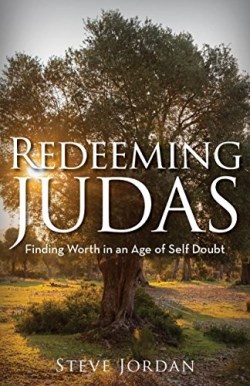 Redeeming Judas : Finding Worth In An Age Of Self Doubt
Redeeming Judas : Finding Worth In An Age Of Self Doubt
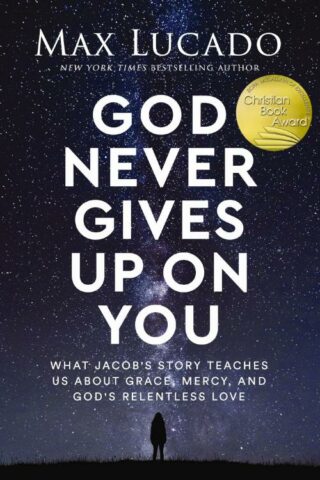 God Never Gives Up On You
God Never Gives Up On You
 Kindness Prayer Box
Kindness Prayer Box
 My Rock My Strength Silk Necktie (Tie)
My Rock My Strength Silk Necktie (Tie)
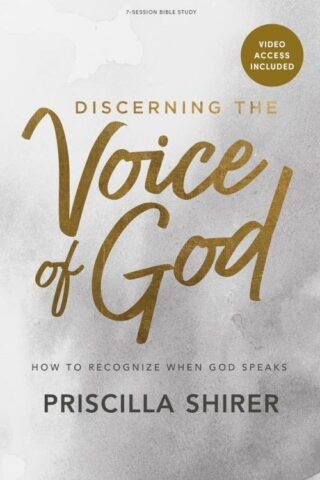 Discerning The Voice Of God Bible Study Book With Video Access (Student/Study Gu
Discerning The Voice Of God Bible Study Book With Video Access (Student/Study Gu
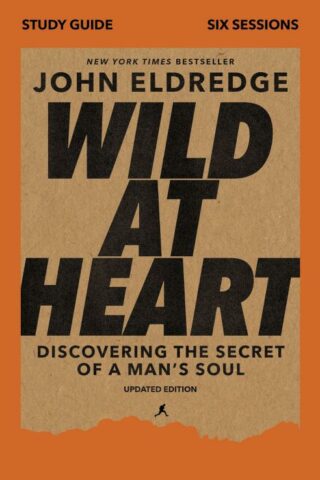 Wild At Heart Study Guide Updated Edition (Student/Study Guide)
Wild At Heart Study Guide Updated Edition (Student/Study Guide)
 Living Single
Living Single
 Chain Man Of God (Size 9 Ring)
Chain Man Of God (Size 9 Ring)
 You are Blessed 366 Devotions for Women
You are Blessed 366 Devotions for Women
 Sympathy Simply Stated
Sympathy Simply Stated
 Bible Mild Glider Gel Highlighter Kit
Bible Mild Glider Gel Highlighter Kit
 101 Favorite Bible Verses for Teens, Inspirational Scripture Cards to Keep or Sh
101 Favorite Bible Verses for Teens, Inspirational Scripture Cards to Keep or Sh
 Amazing Grace
Amazing Grace
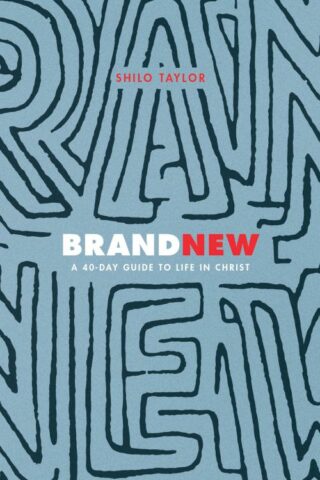 Brand New : A 40 Day Guide To Life In Christ
Brand New : A 40 Day Guide To Life In Christ
 Mother And Daughter Canvas
Mother And Daughter Canvas
 Erasing Hell : What God Said About Eternity, And The Things We've Made Up
Erasing Hell : What God Said About Eternity, And The Things We've Made Up
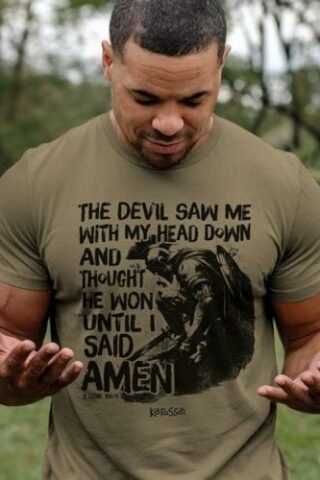 Amen (Large T-Shirt)
Amen (Large T-Shirt)
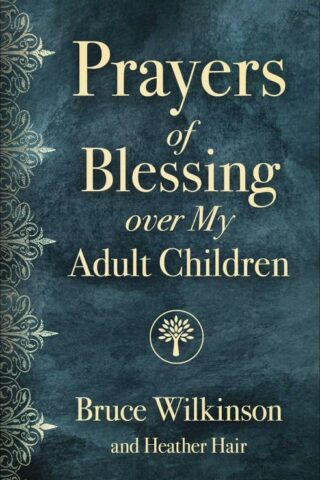 Prayers Of Blessing Over My Adult Children
Prayers Of Blessing Over My Adult Children
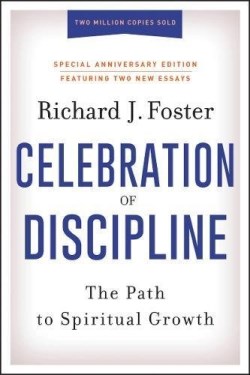 Celebration Of Discipline (Anniversary)
Celebration Of Discipline (Anniversary)
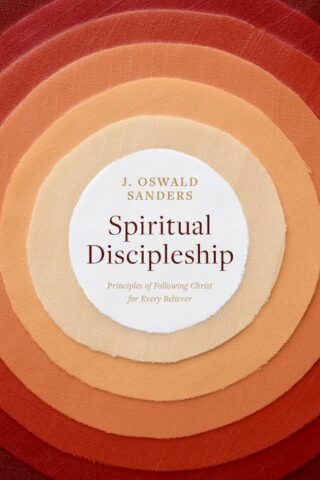 Spiritual Discipleship : Principles Of Following Christ For Every Believer
Spiritual Discipleship : Principles Of Following Christ For Every Believer
 Whats It Like To Be Married To Me
Whats It Like To Be Married To Me
 Graduation
Graduation
 Tunnel Vision
Tunnel Vision
 Take N Play Anywhere Checkers
Take N Play Anywhere Checkers
 Crown Of Thorns Christ My Strength (Size 10 Ring)
Crown Of Thorns Christ My Strength (Size 10 Ring)
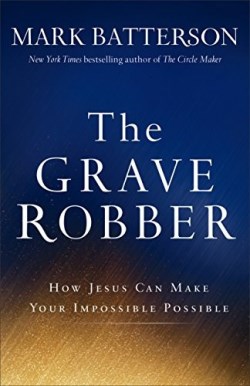 Grave Robber : How Jesus Can Make Your Impossible Possible (Reprinted)
Grave Robber : How Jesus Can Make Your Impossible Possible (Reprinted)
 True Images The Bible For Teen Girls
True Images The Bible For Teen Girls
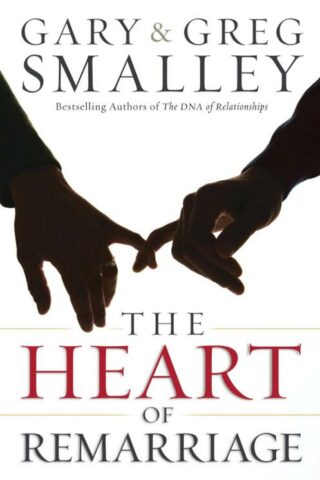 Heart Of Remarriage
Heart Of Remarriage
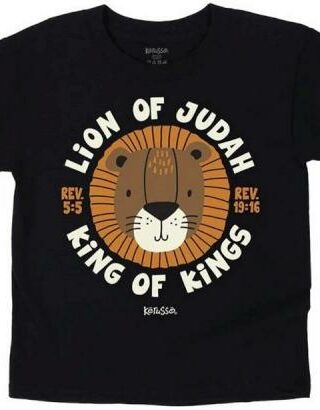
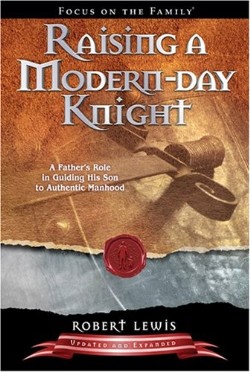

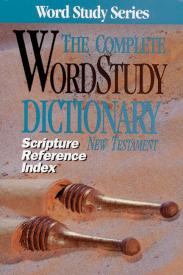
![602557391060 Identity [Deluxe Edition]](https://ocbfbookstore.org/wp-content/uploads/2025/01/602557391060-320x480.jpg)
